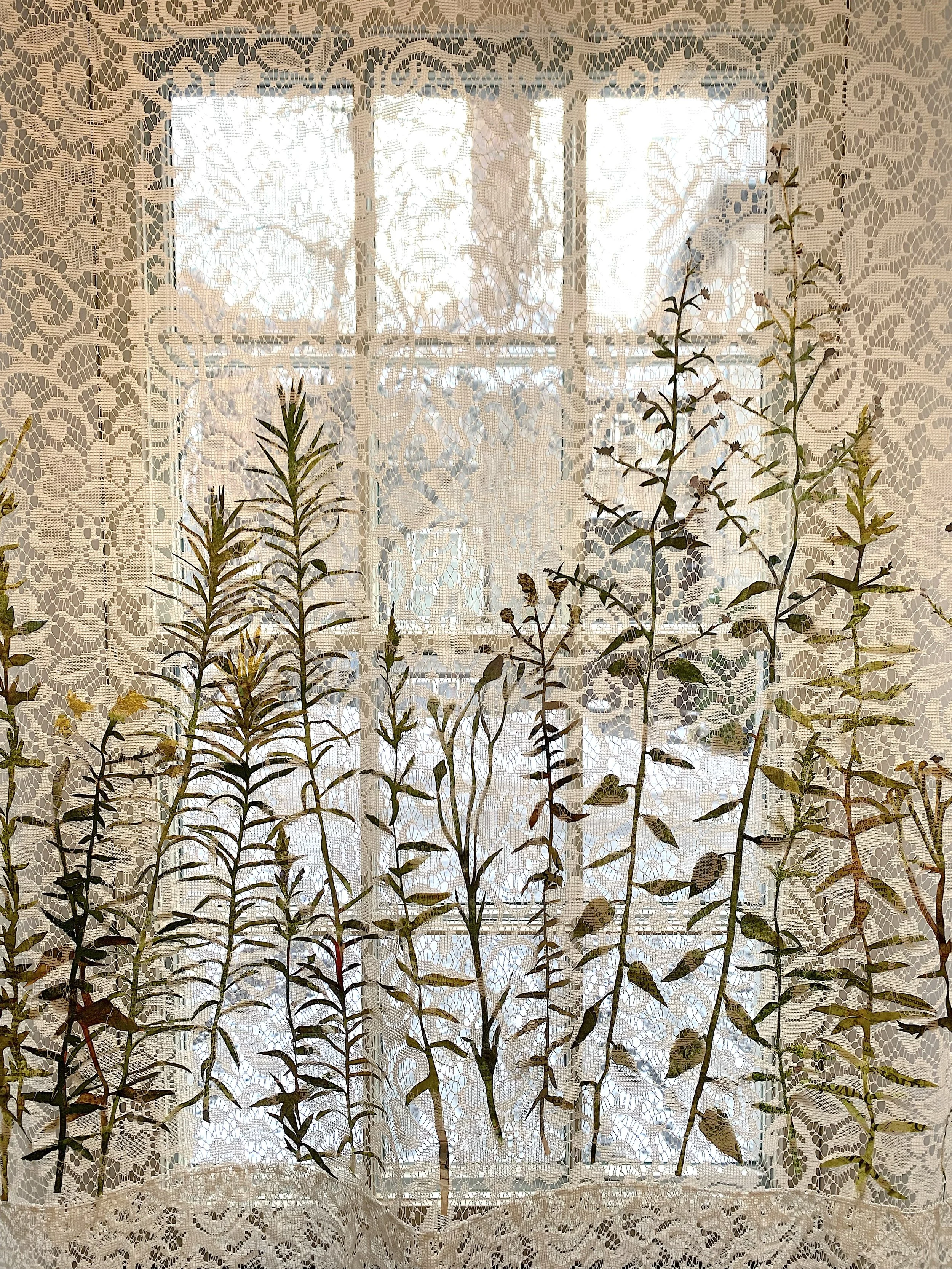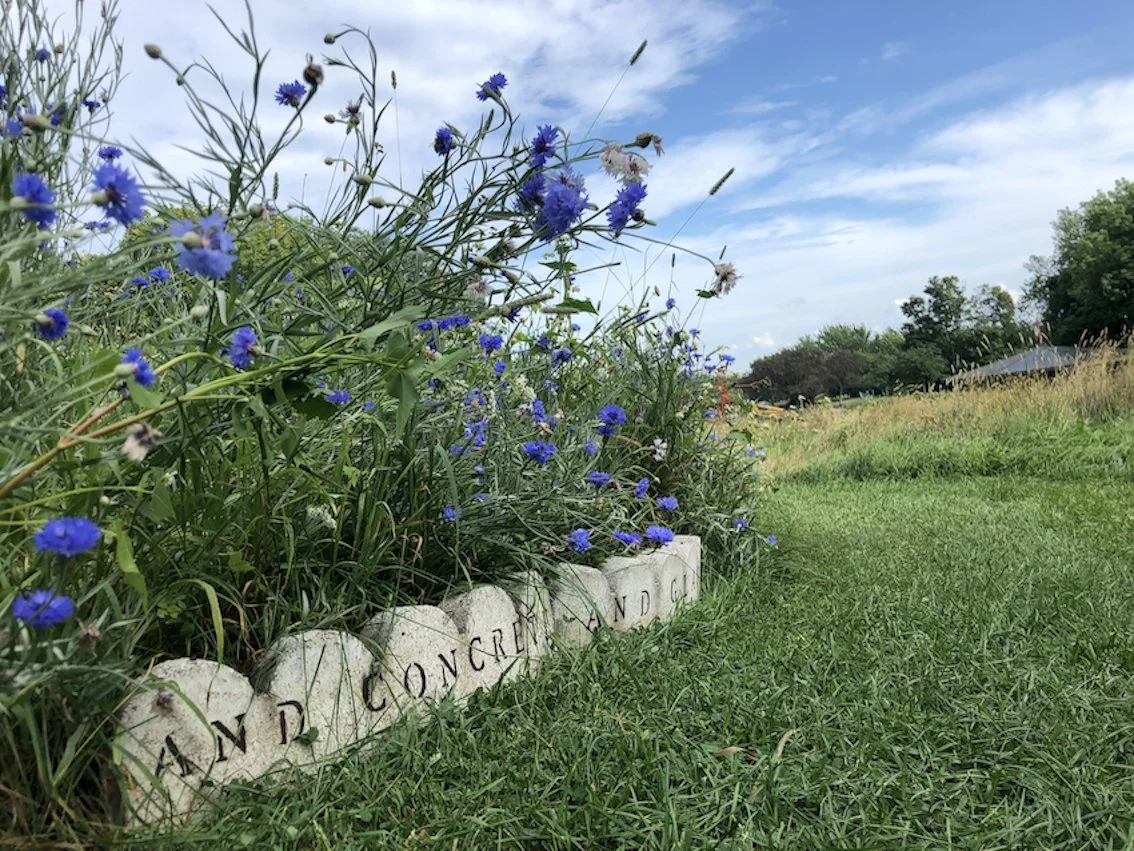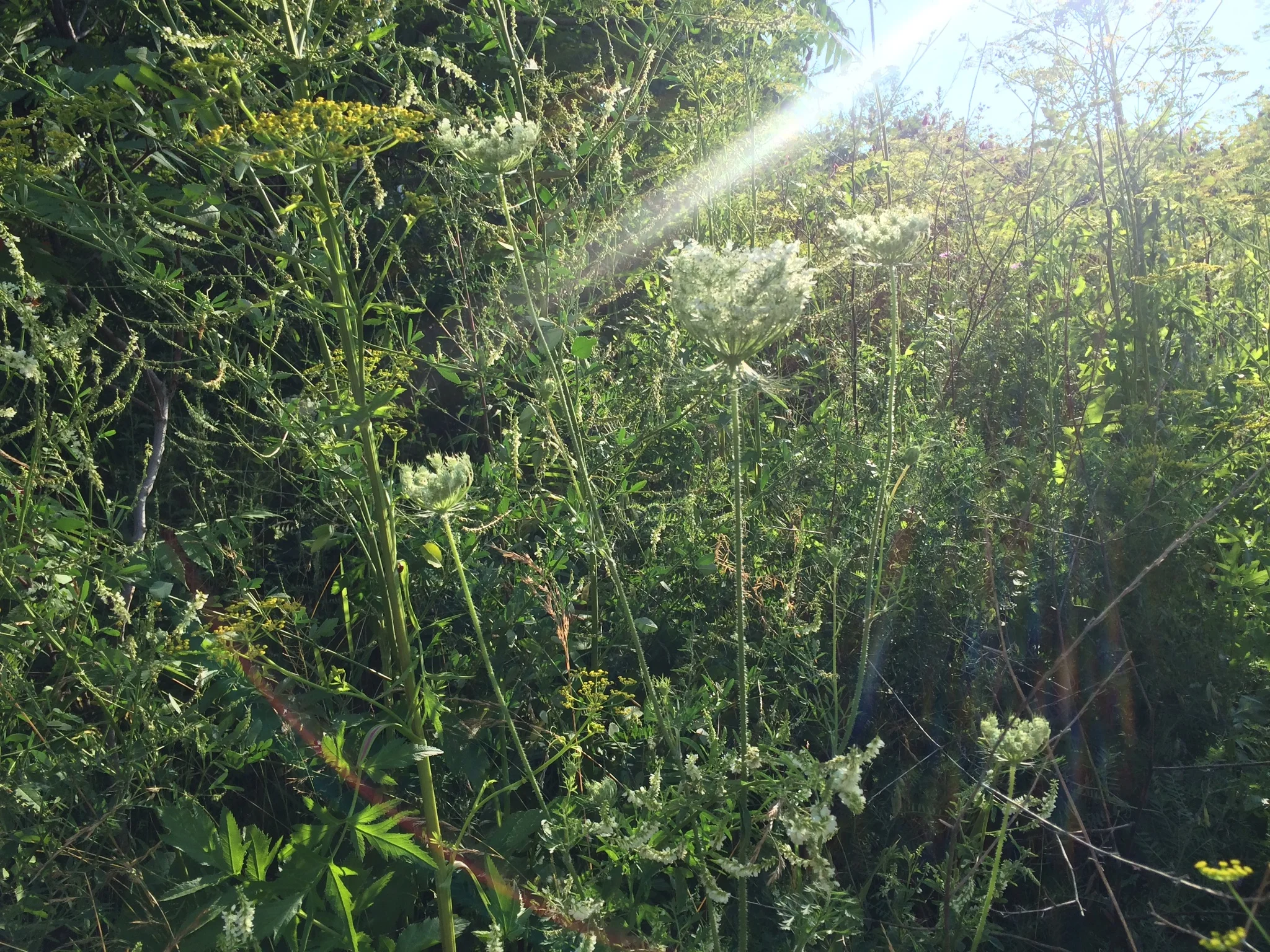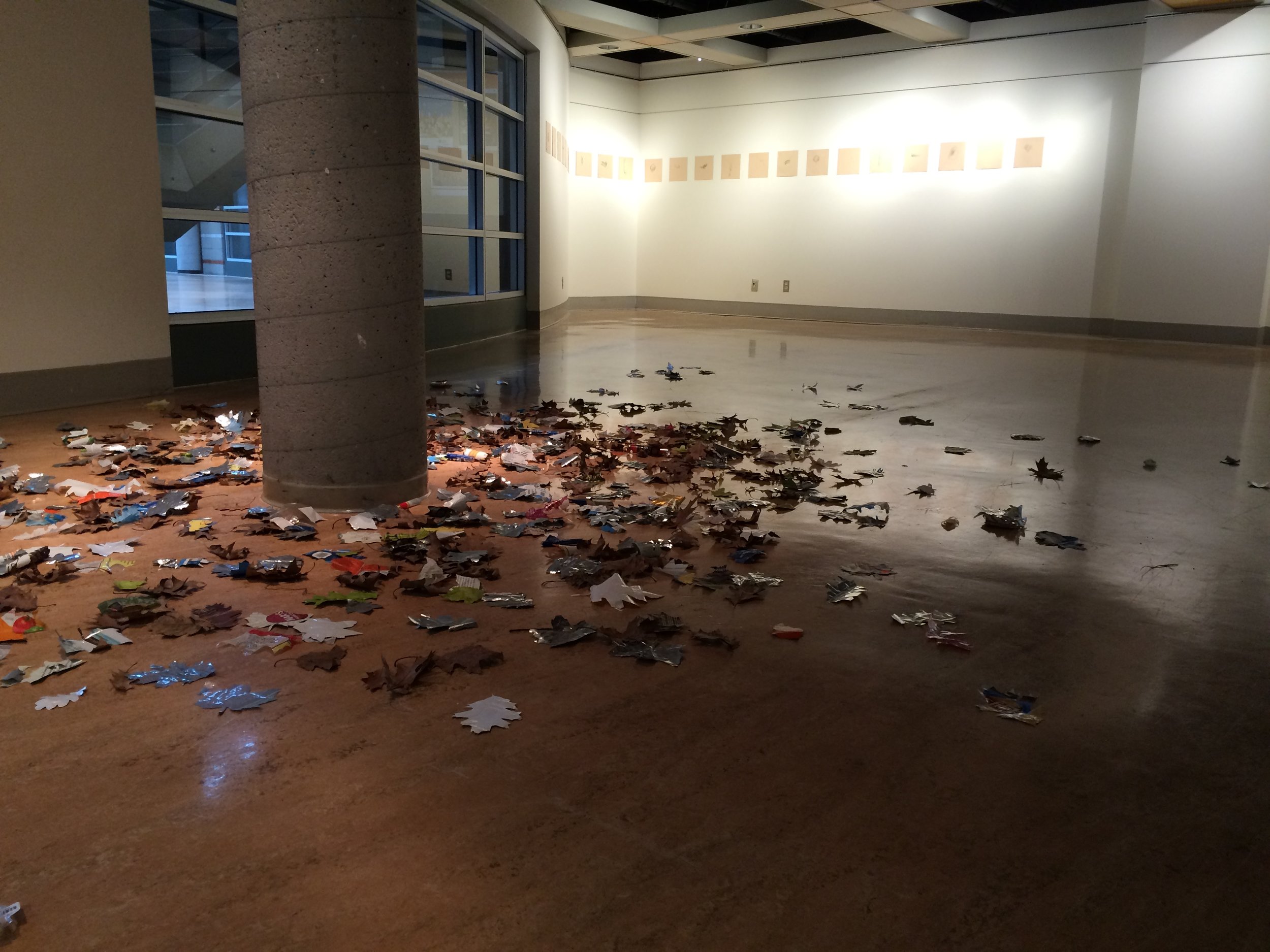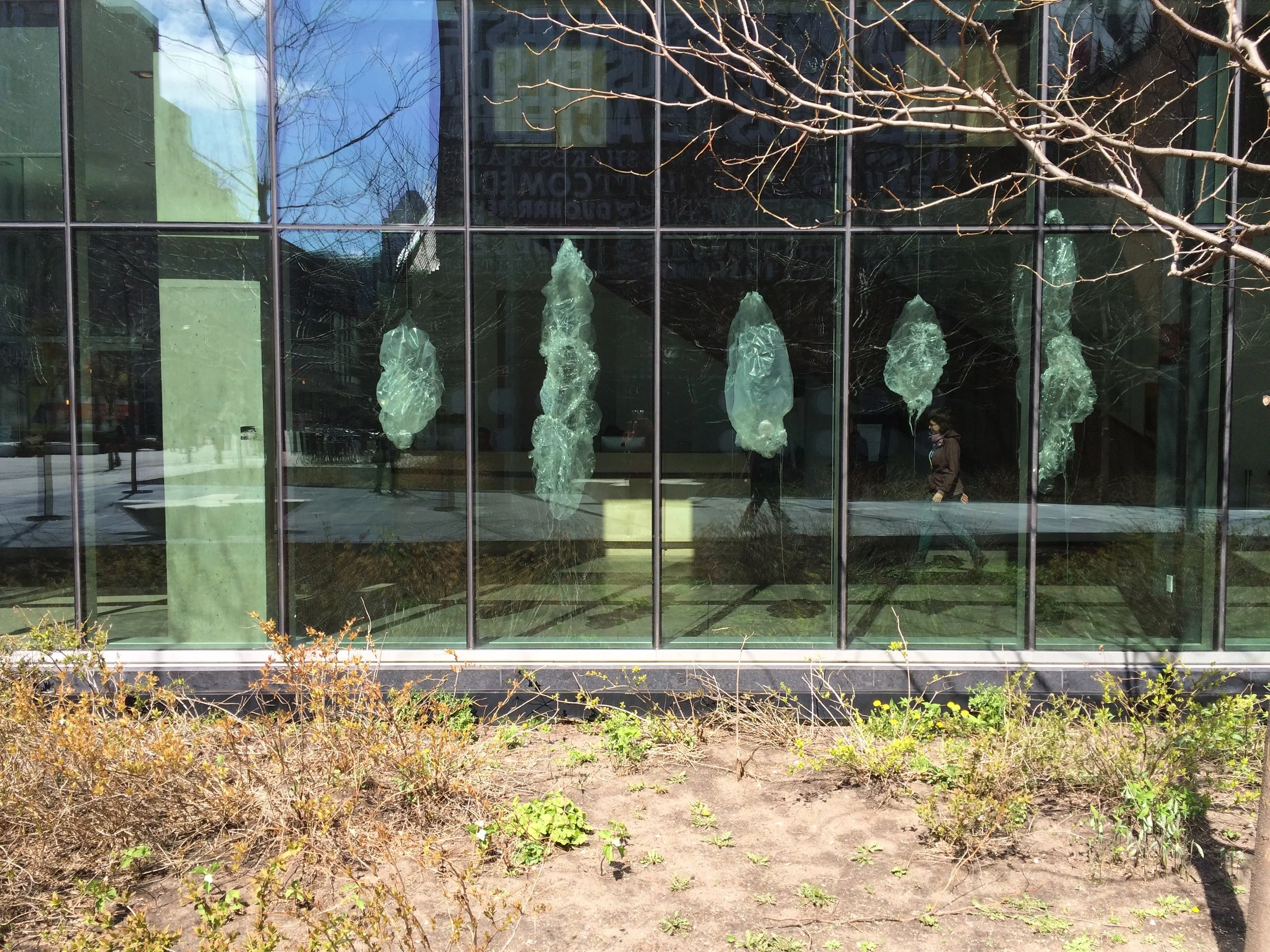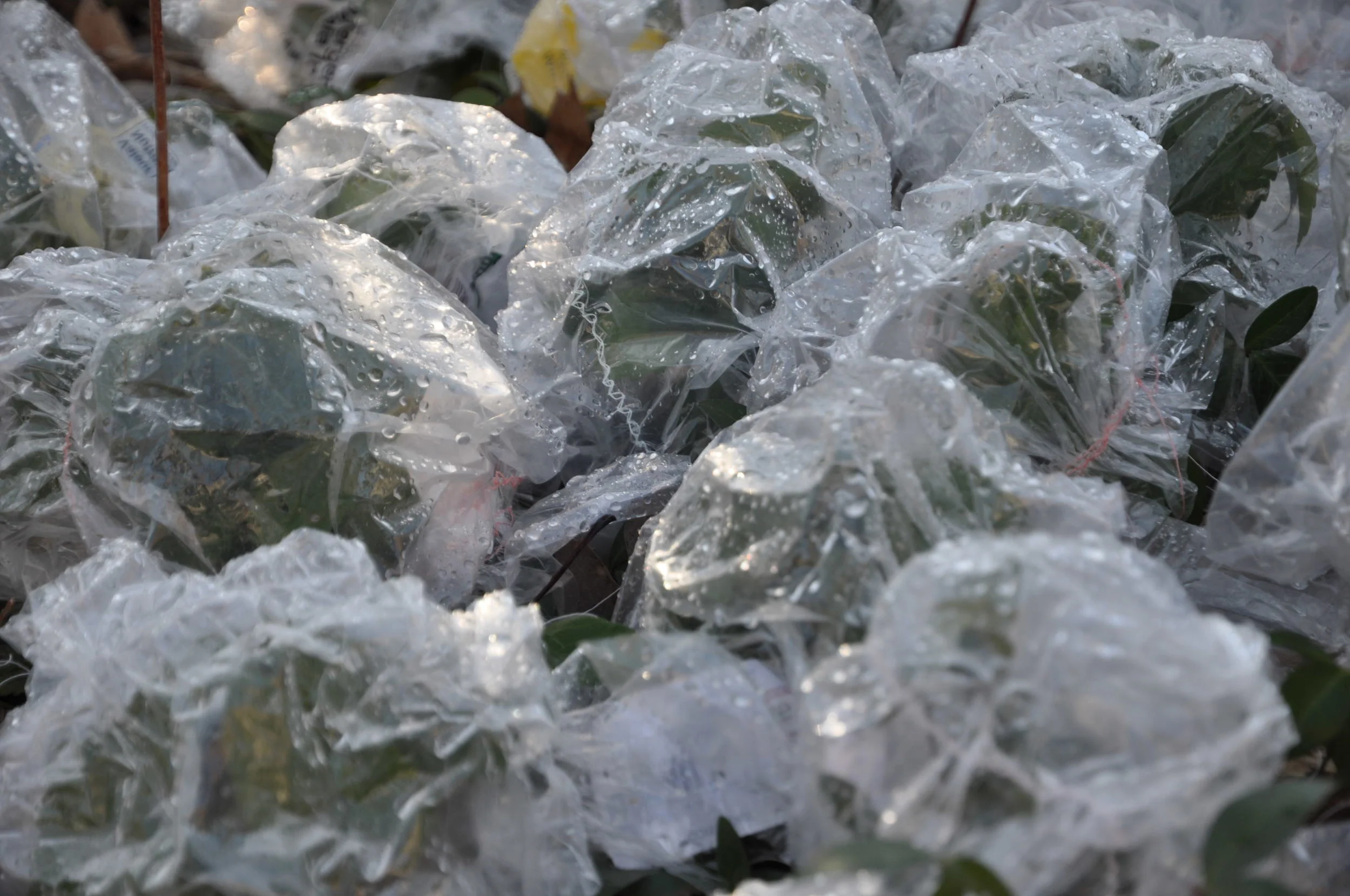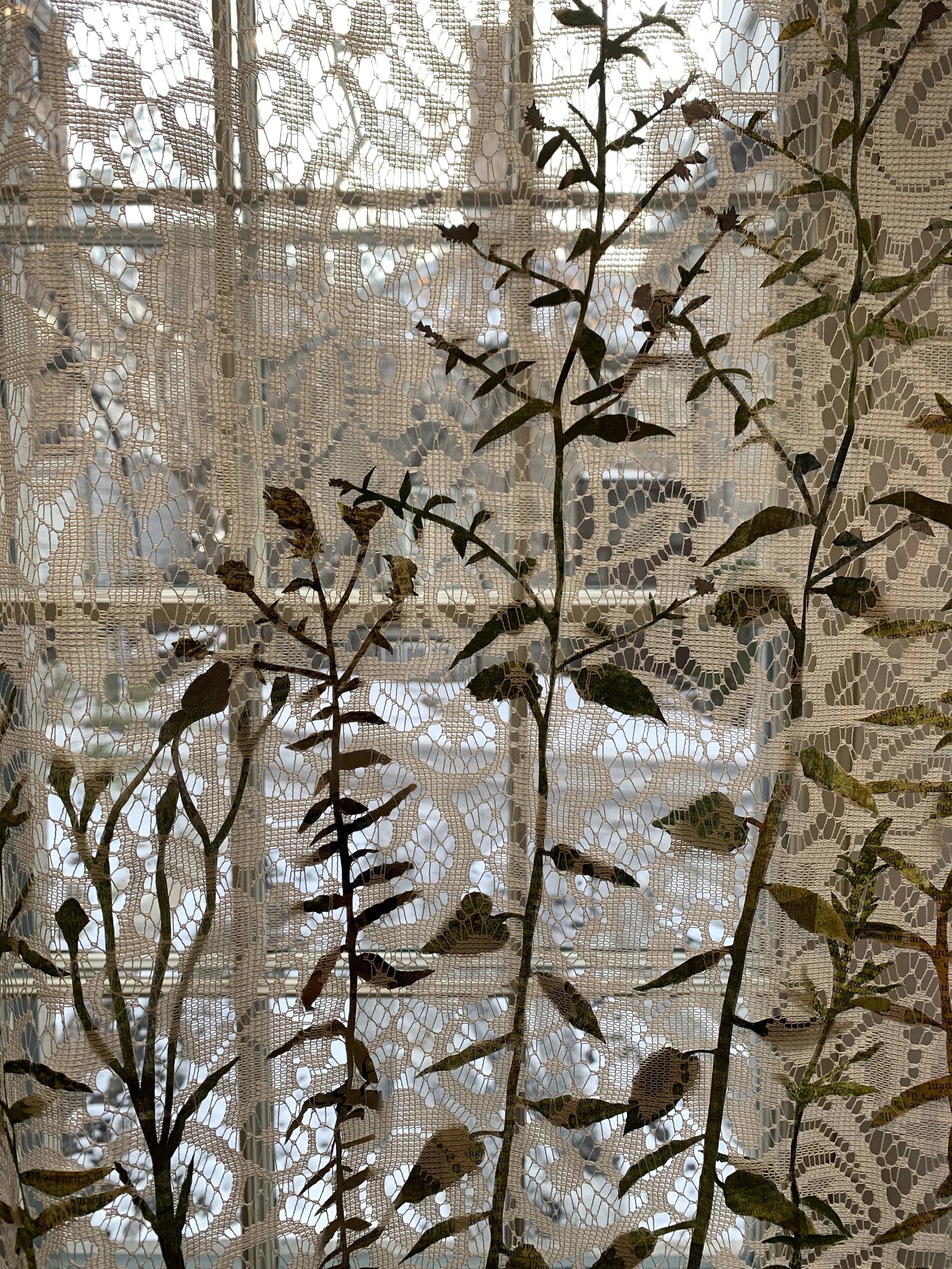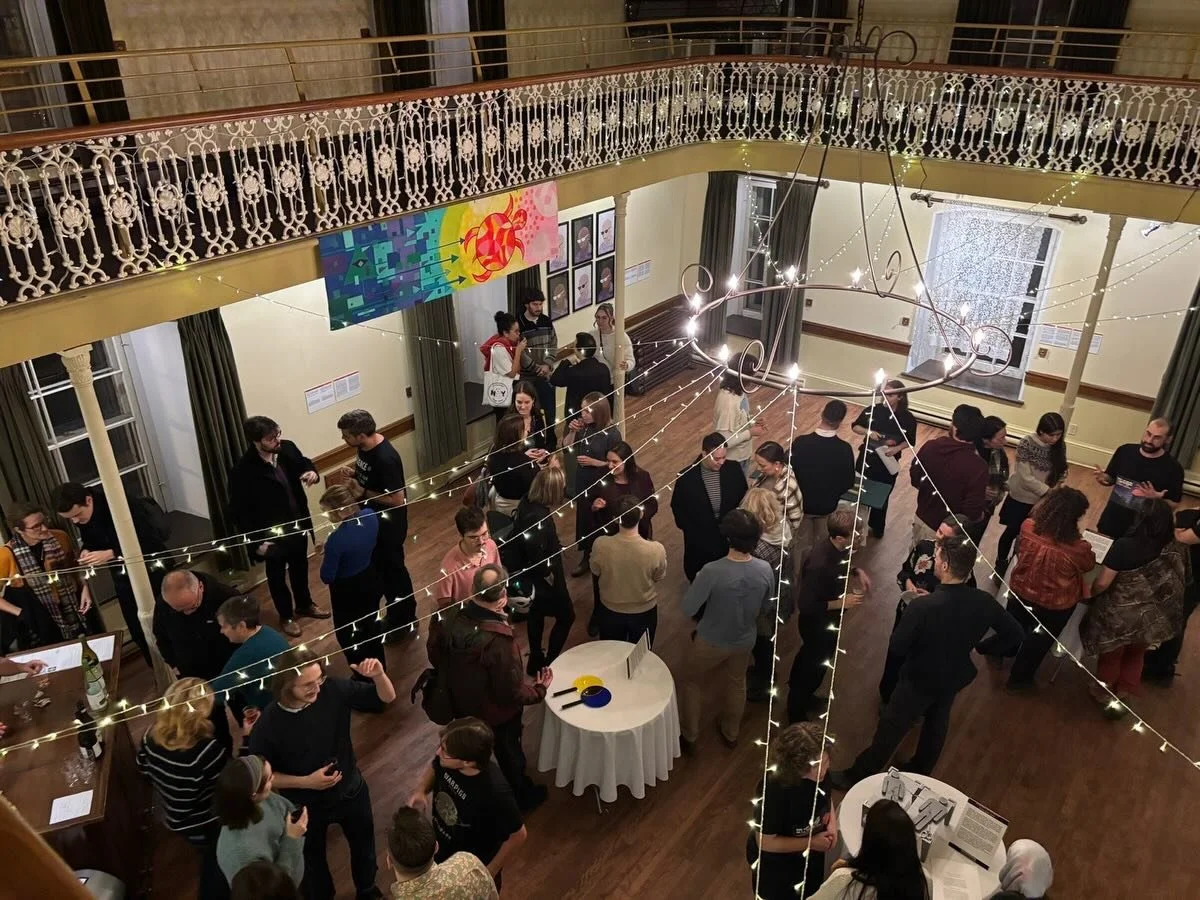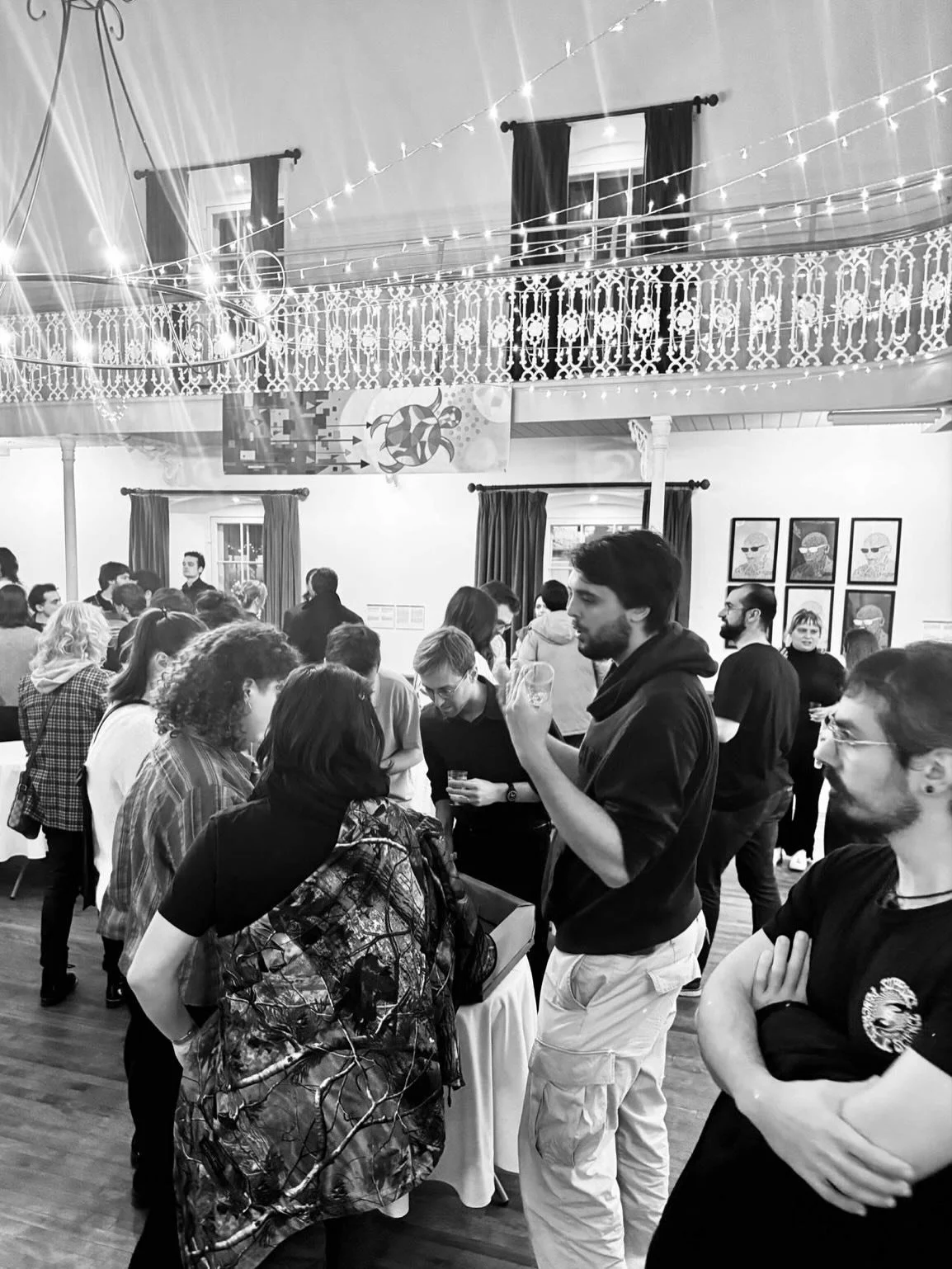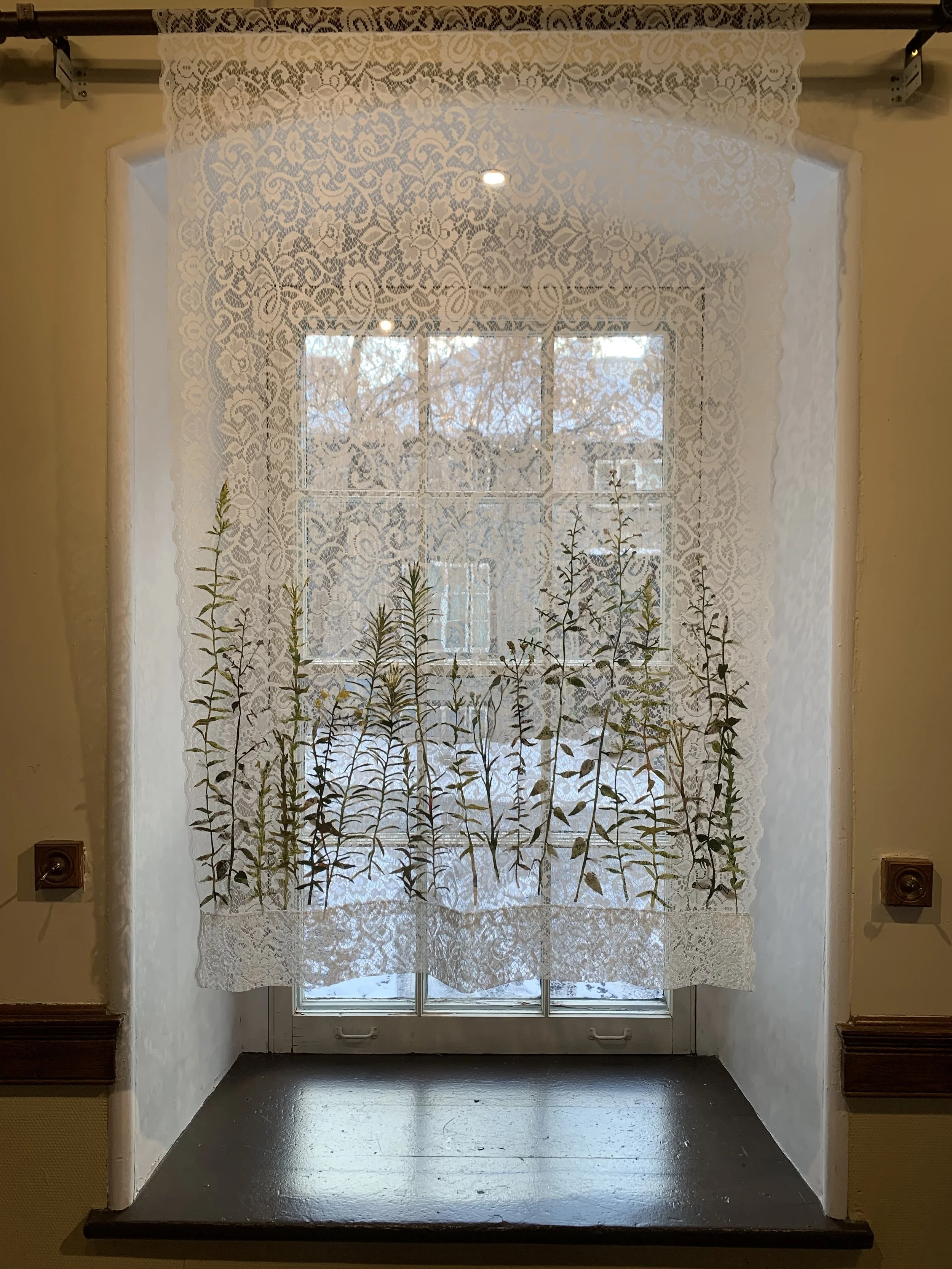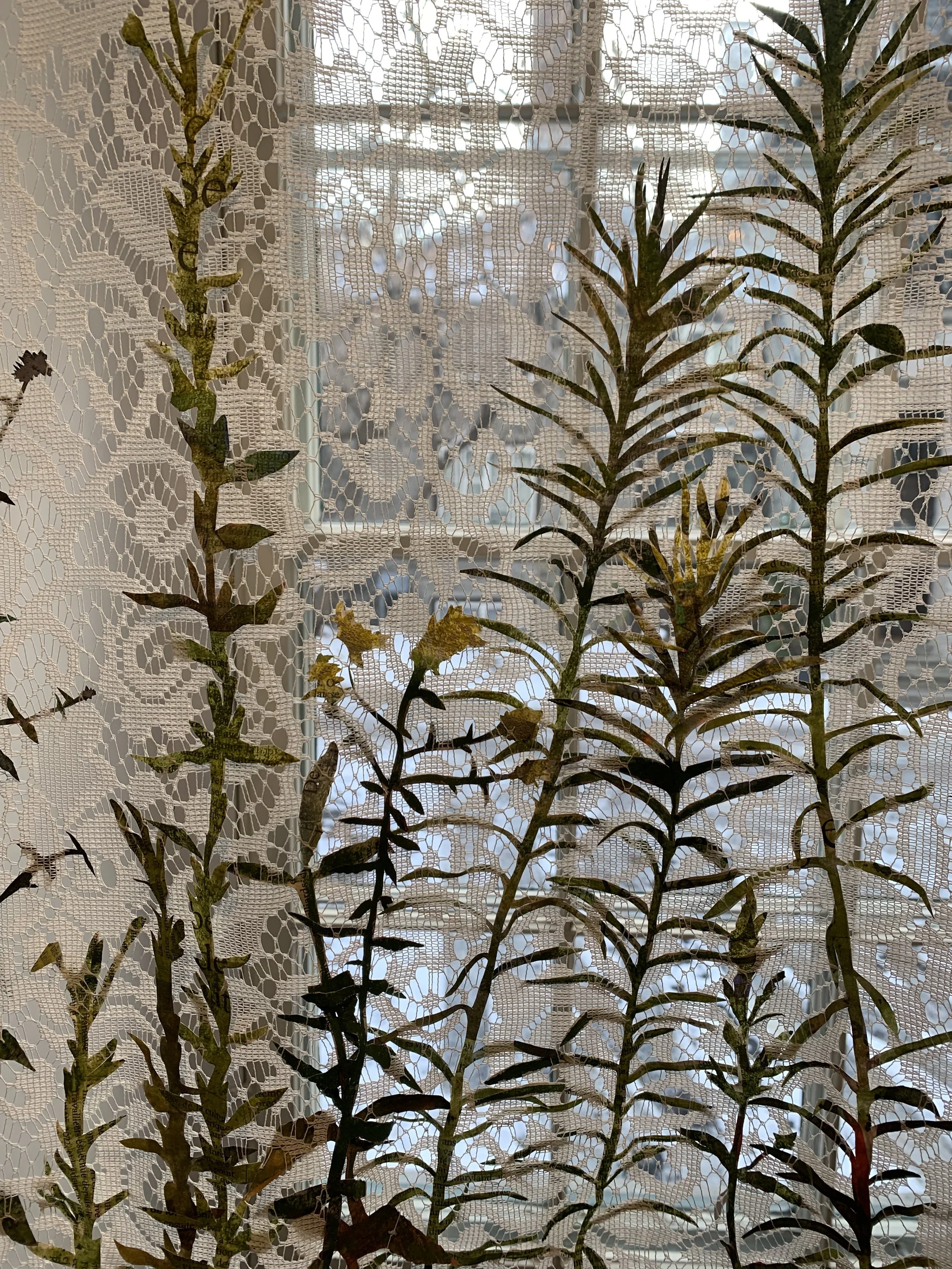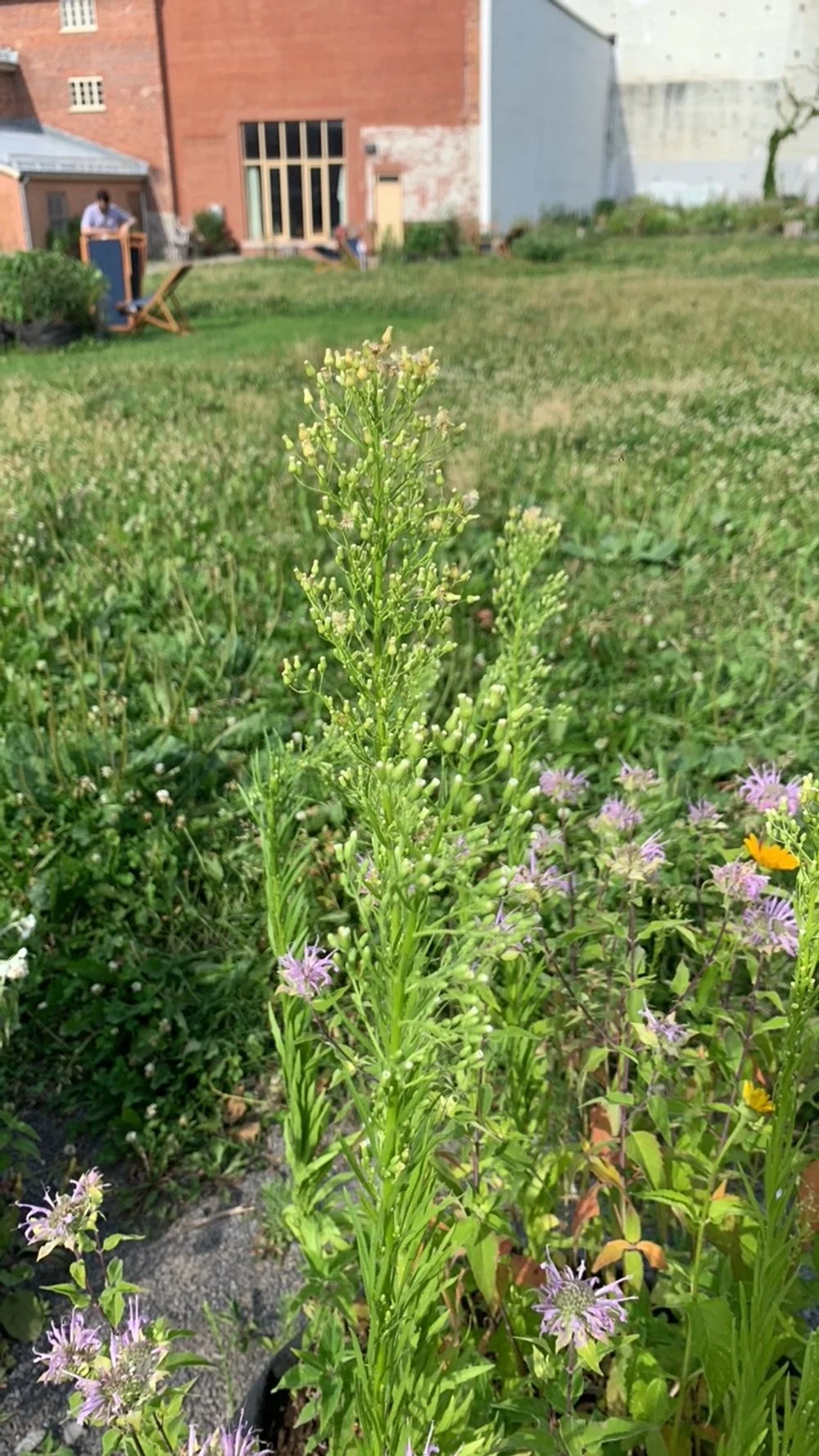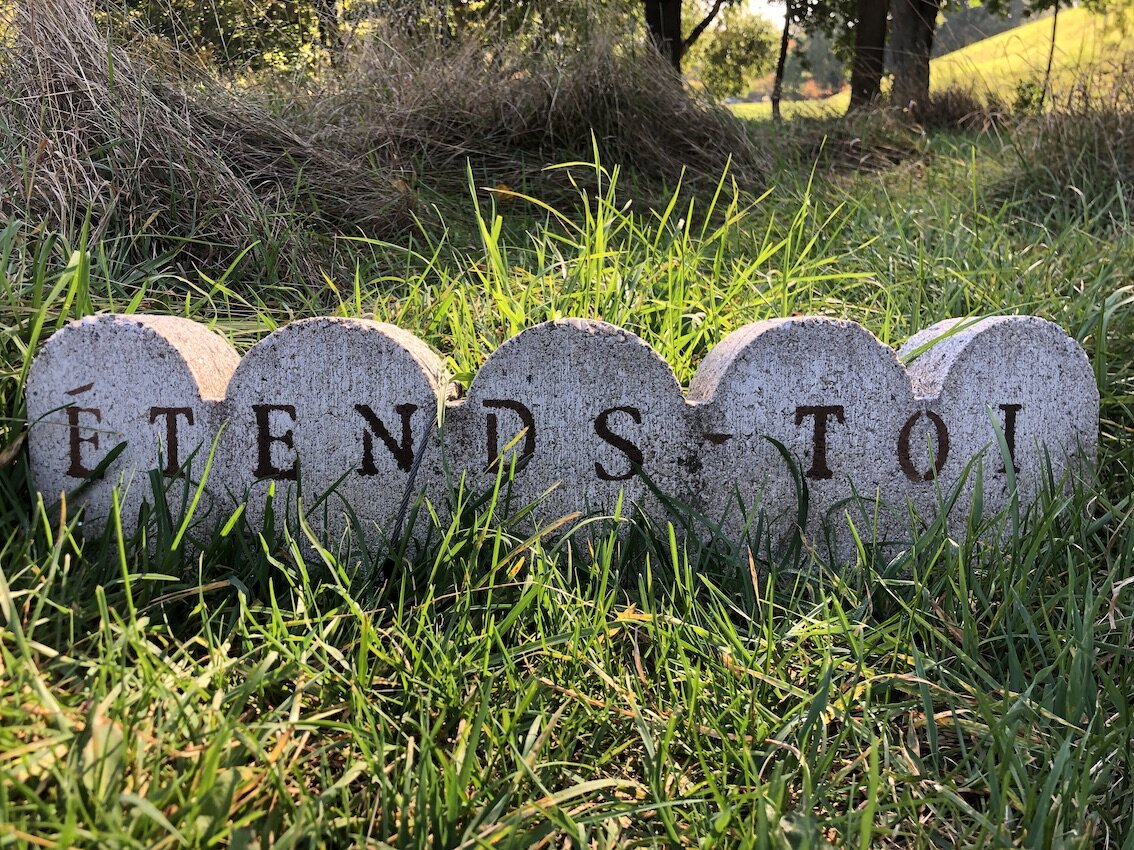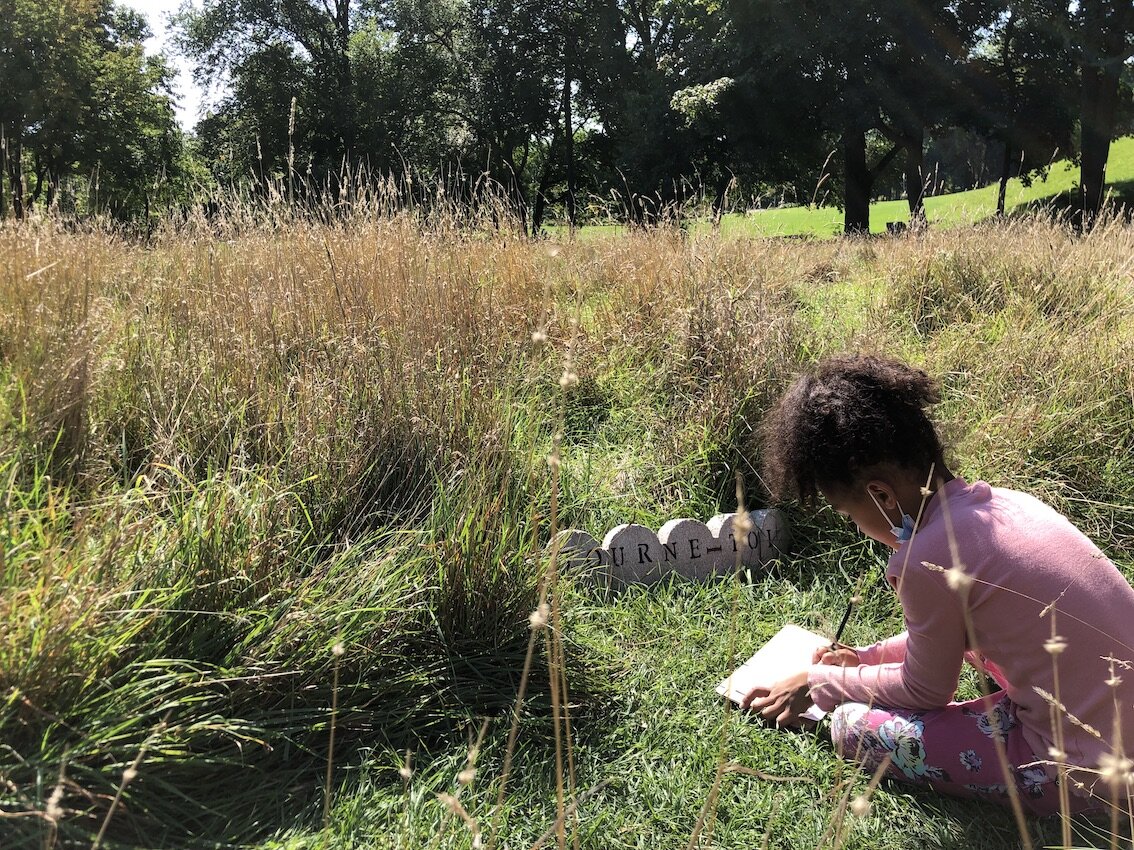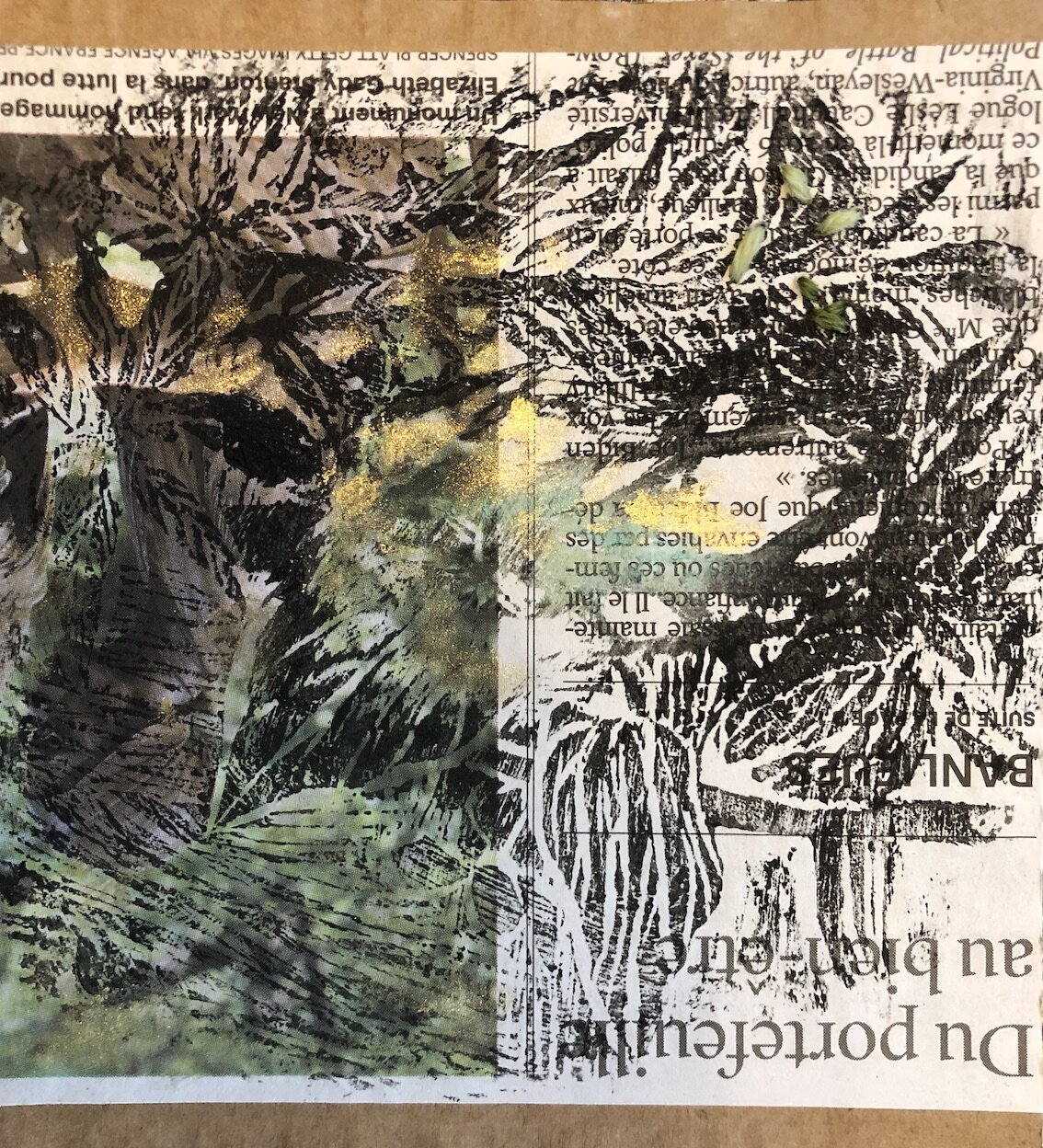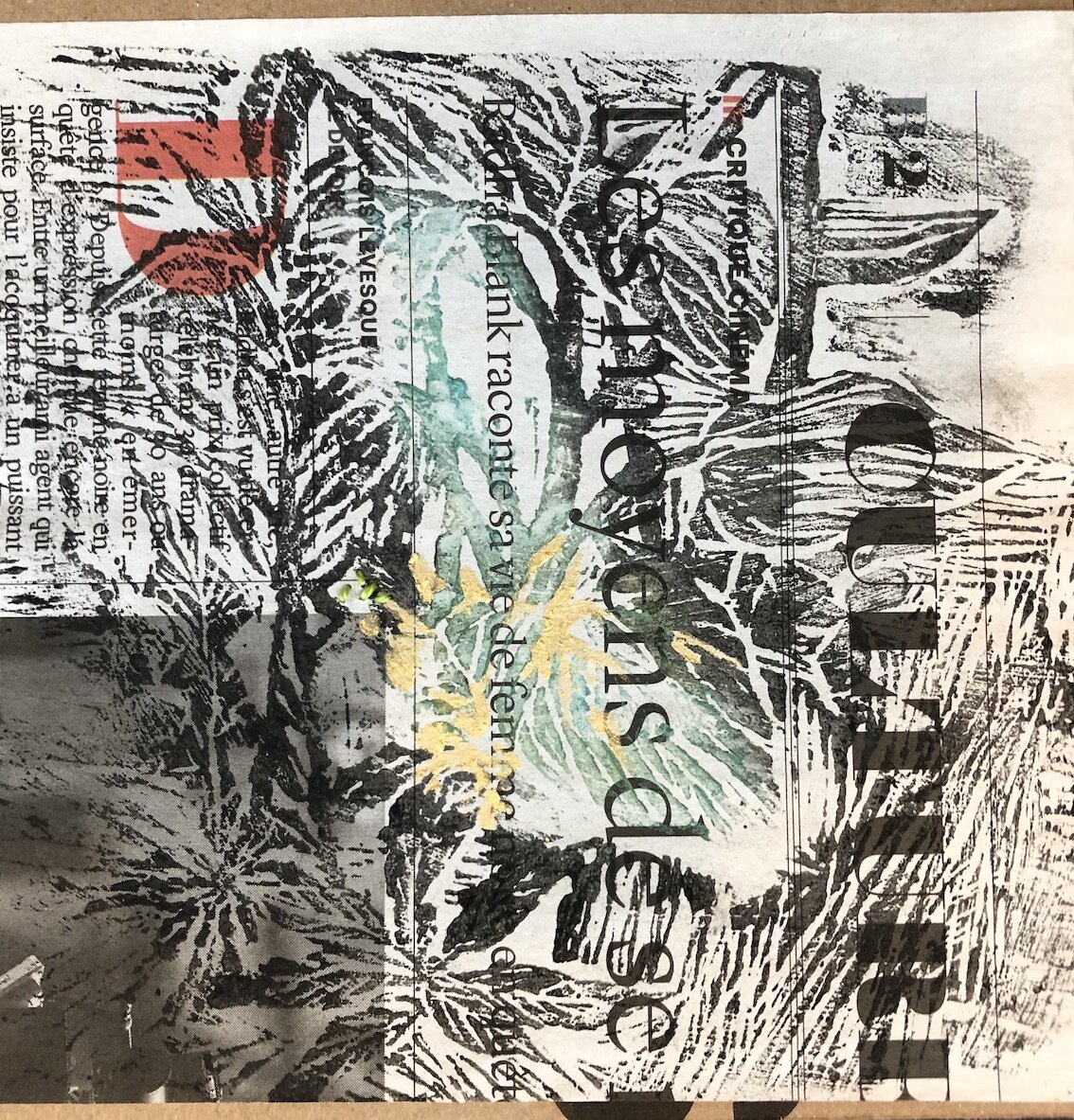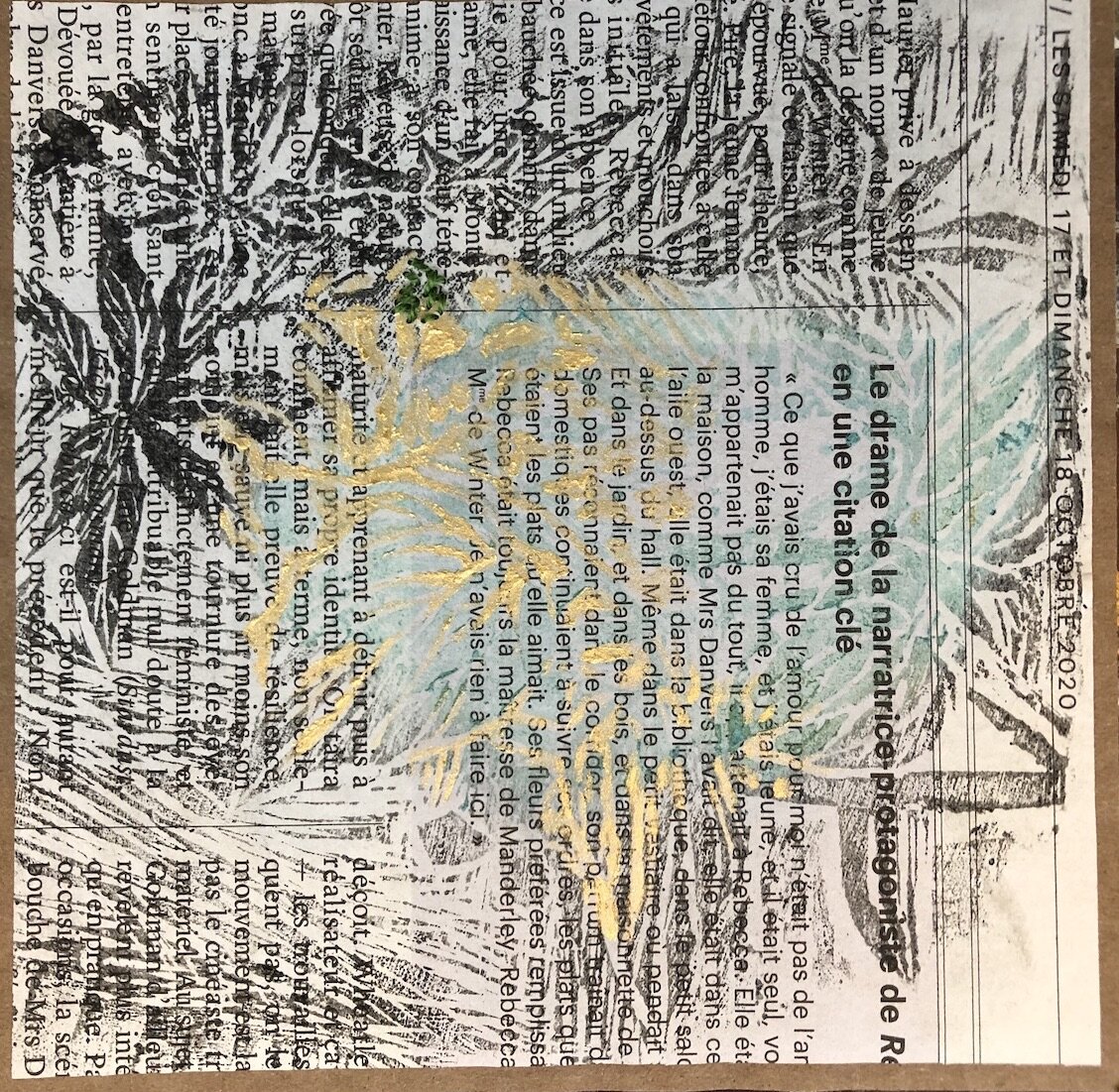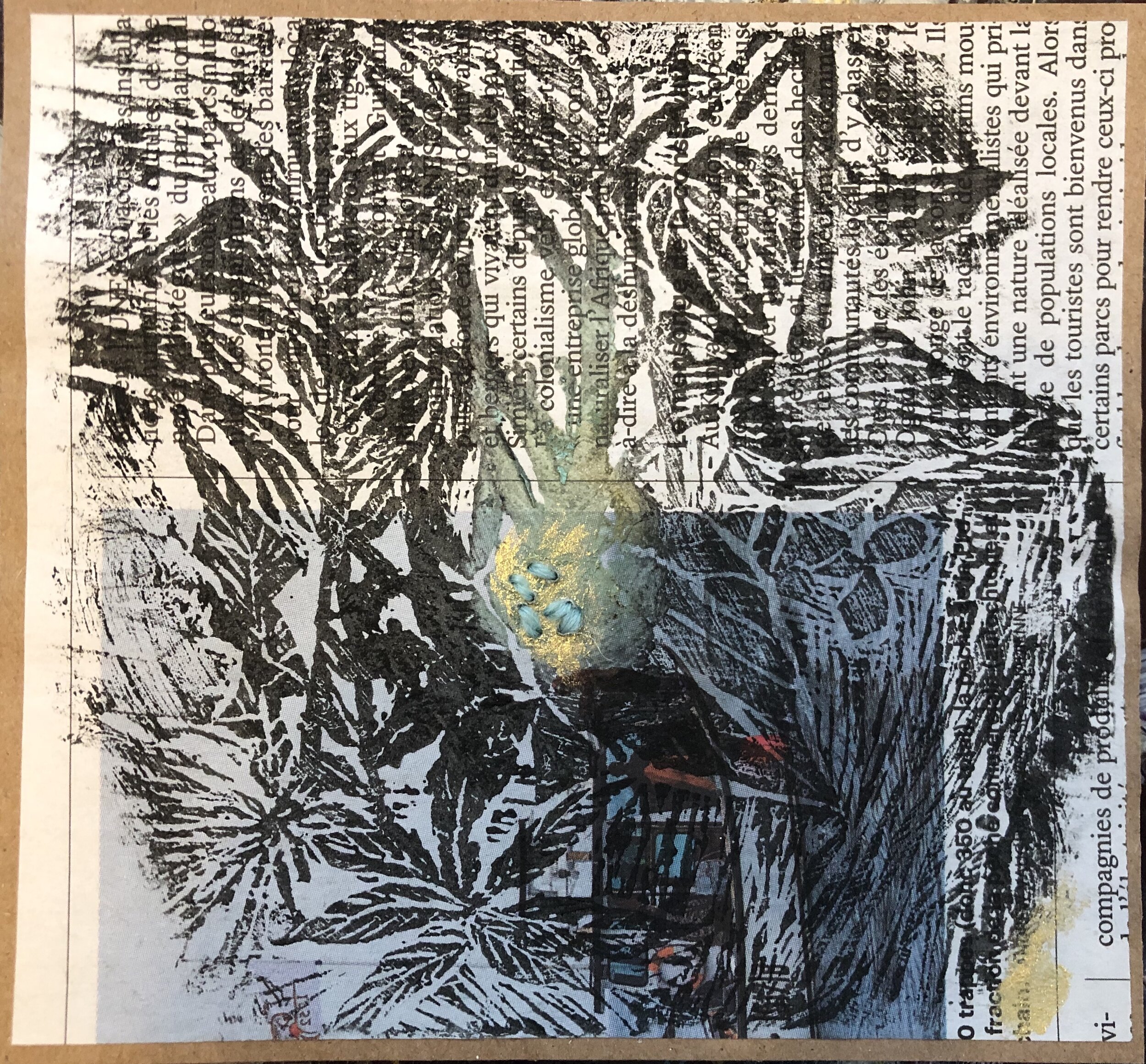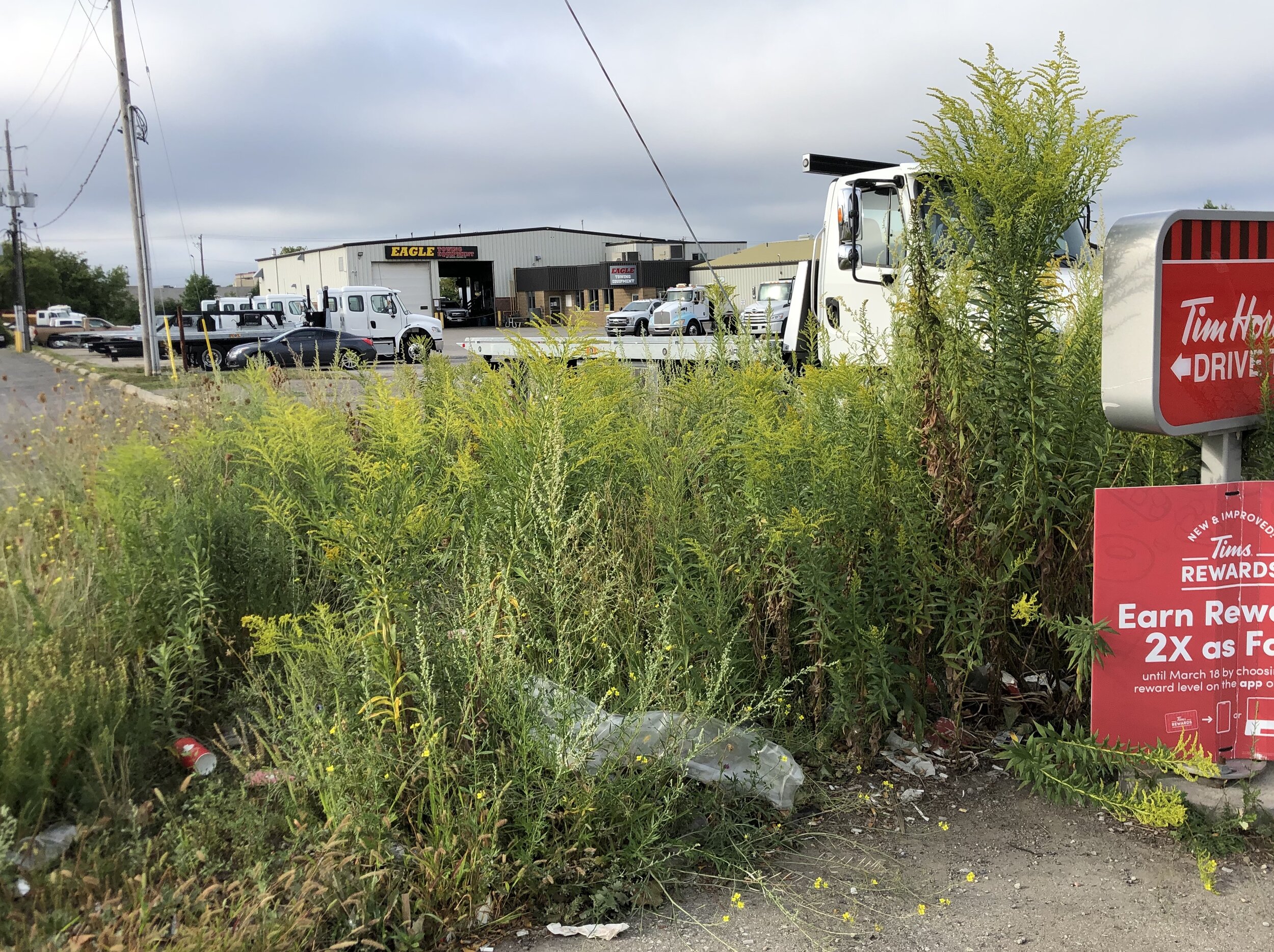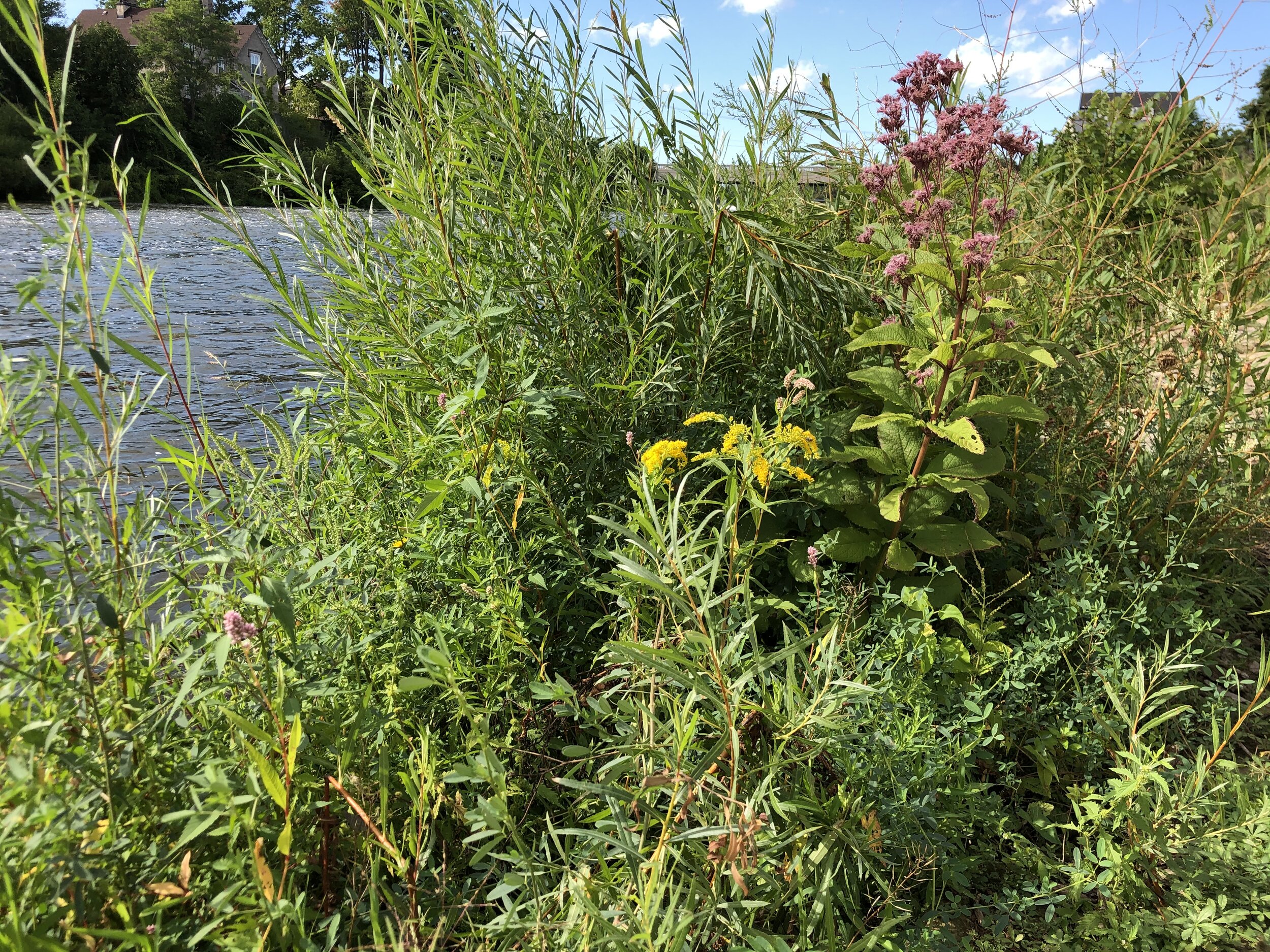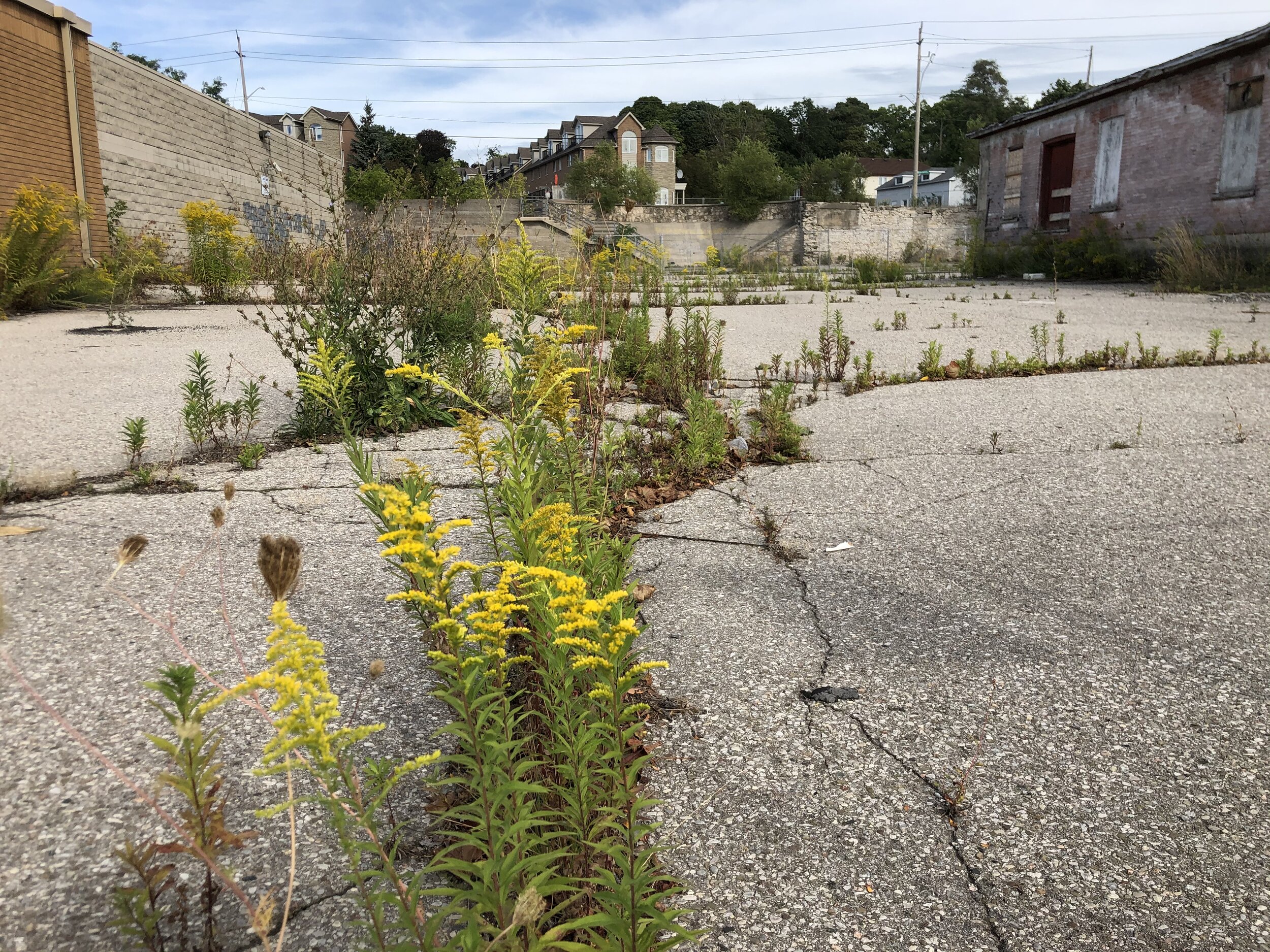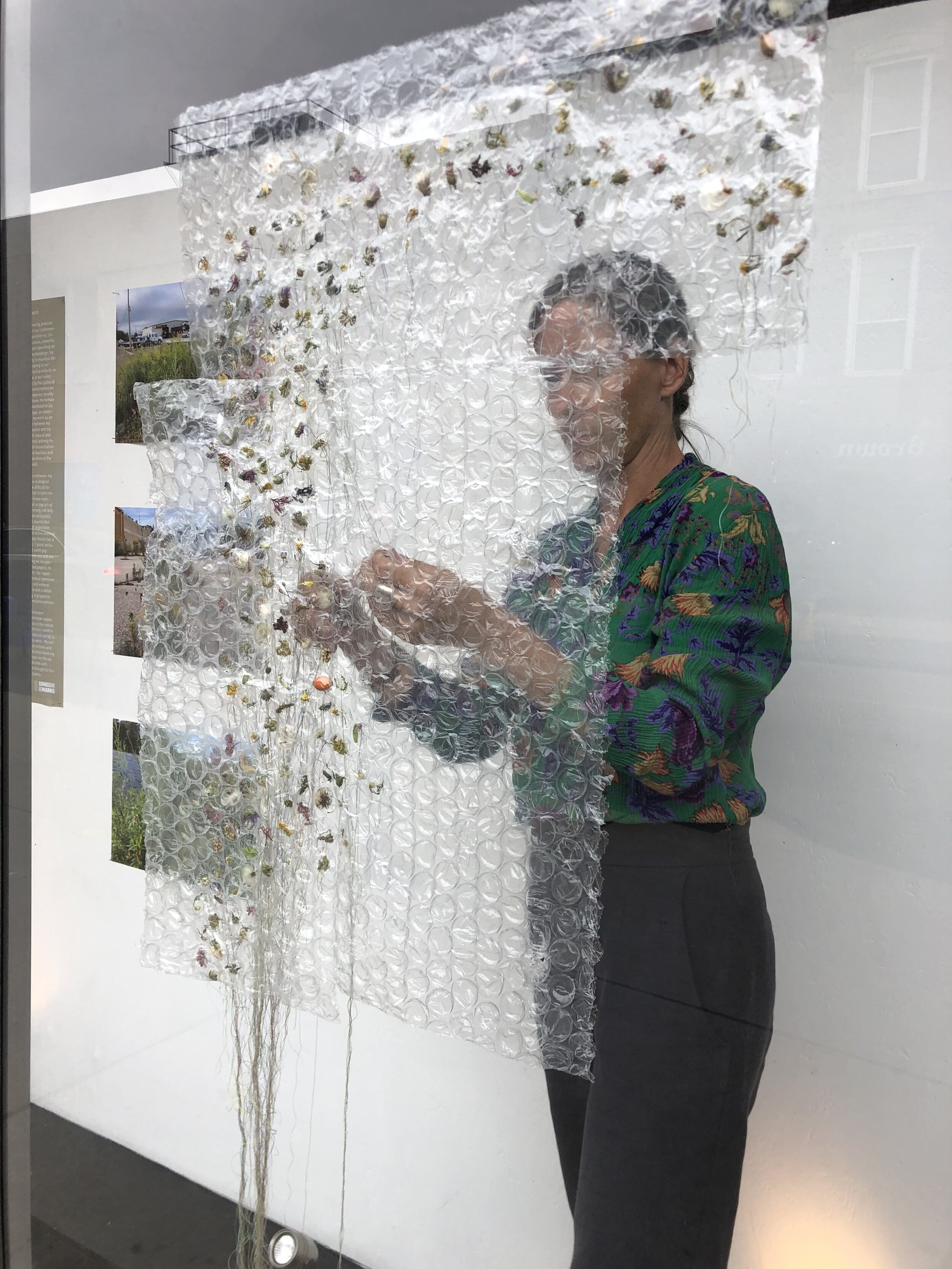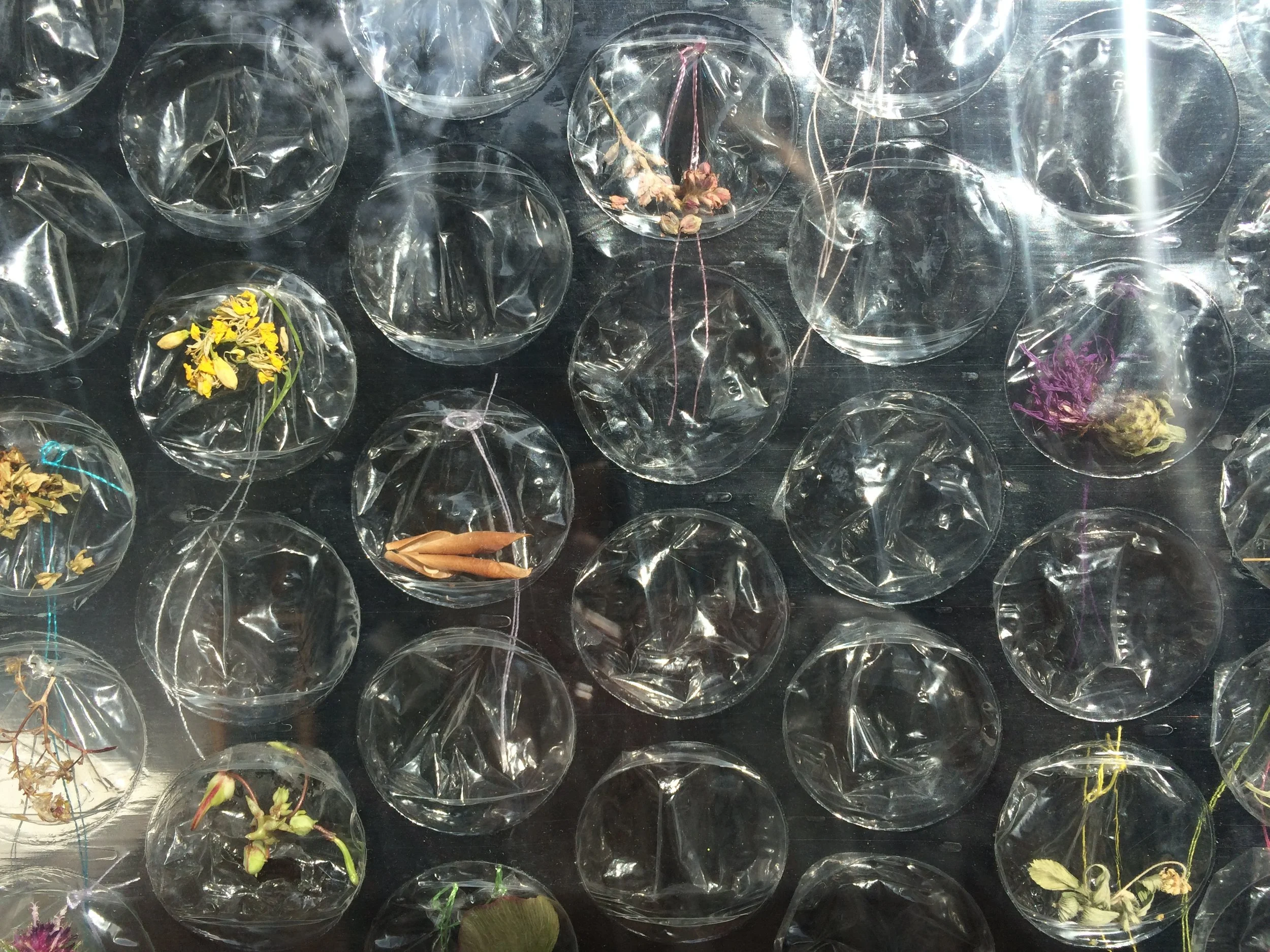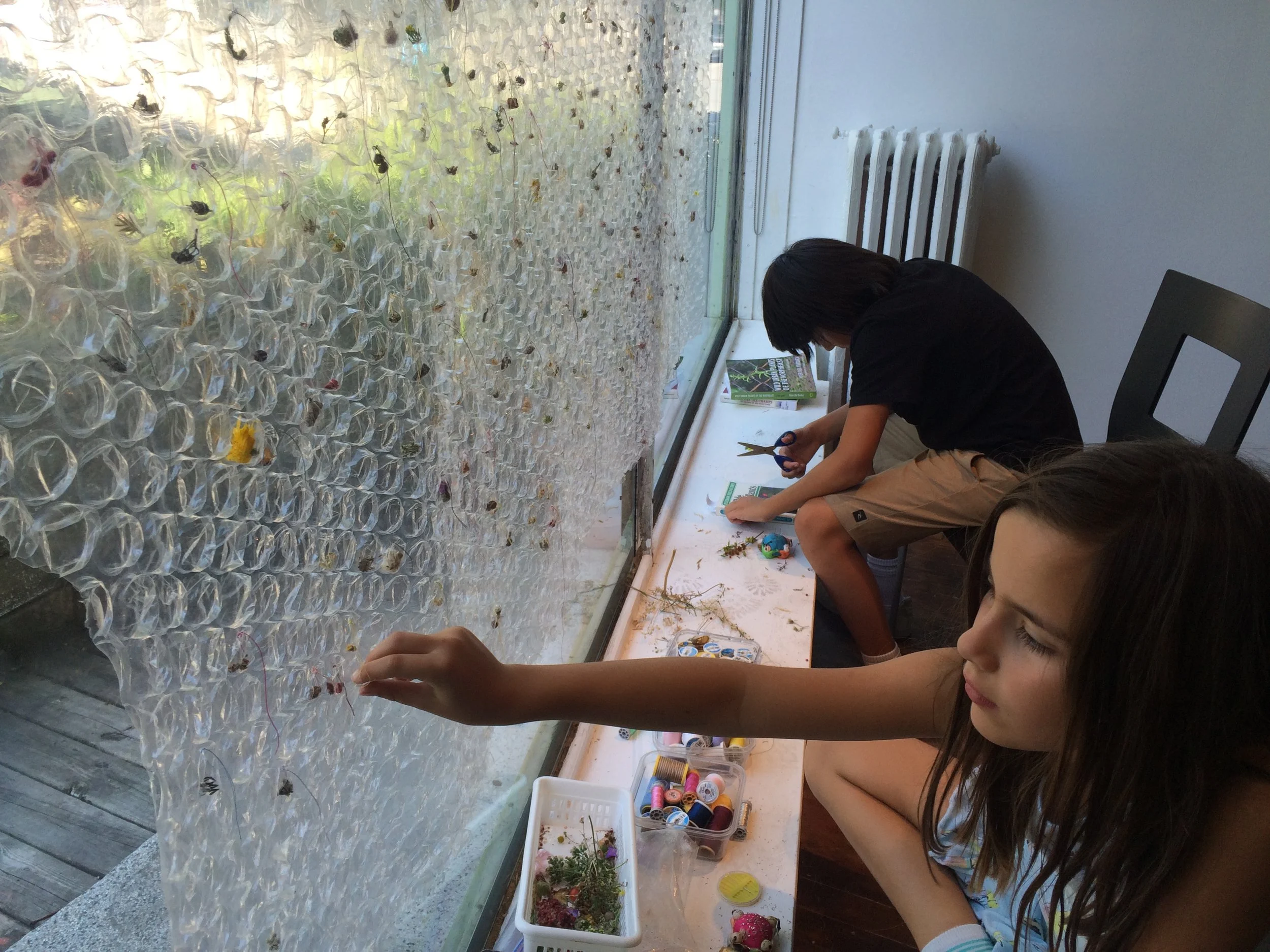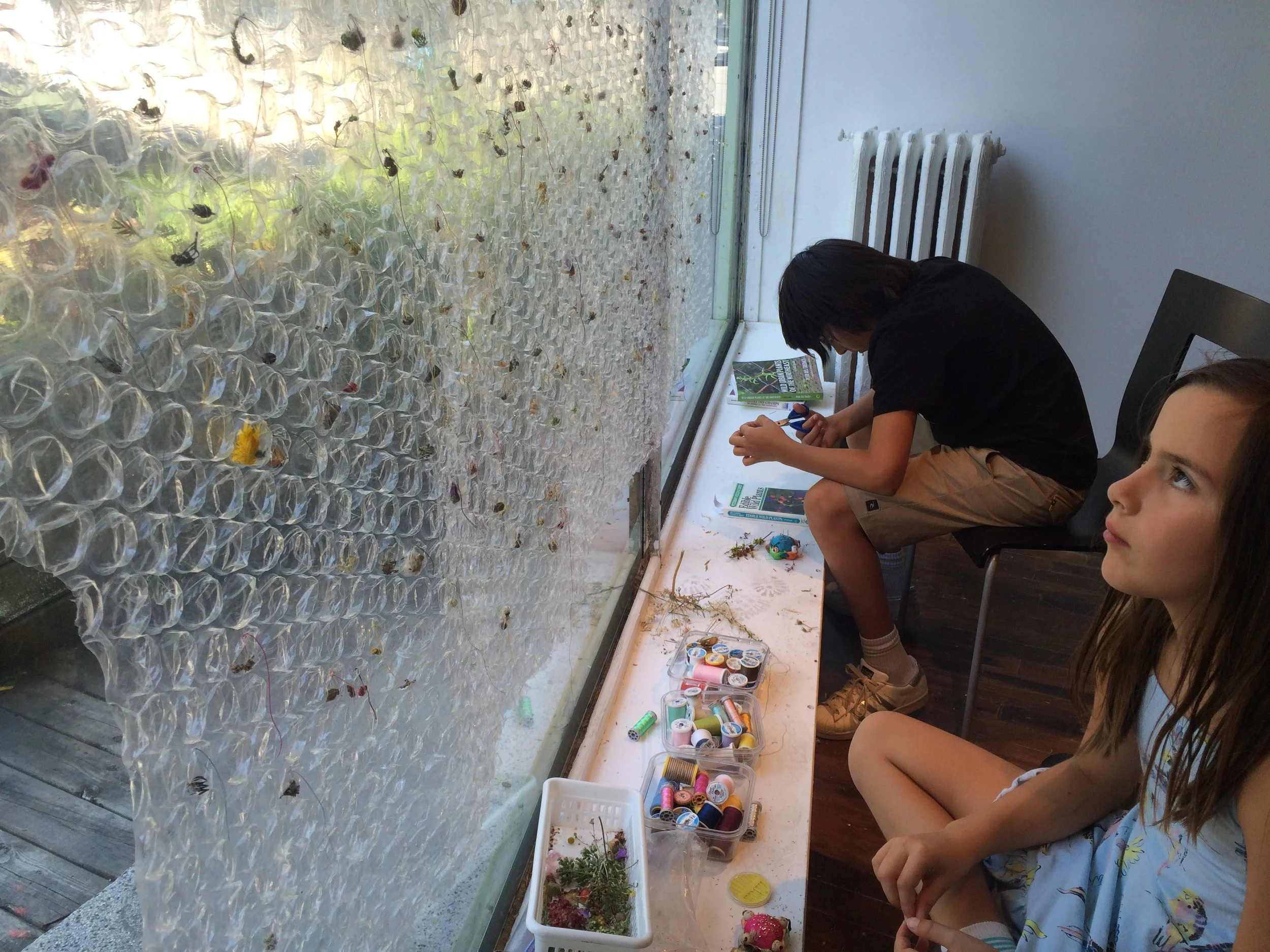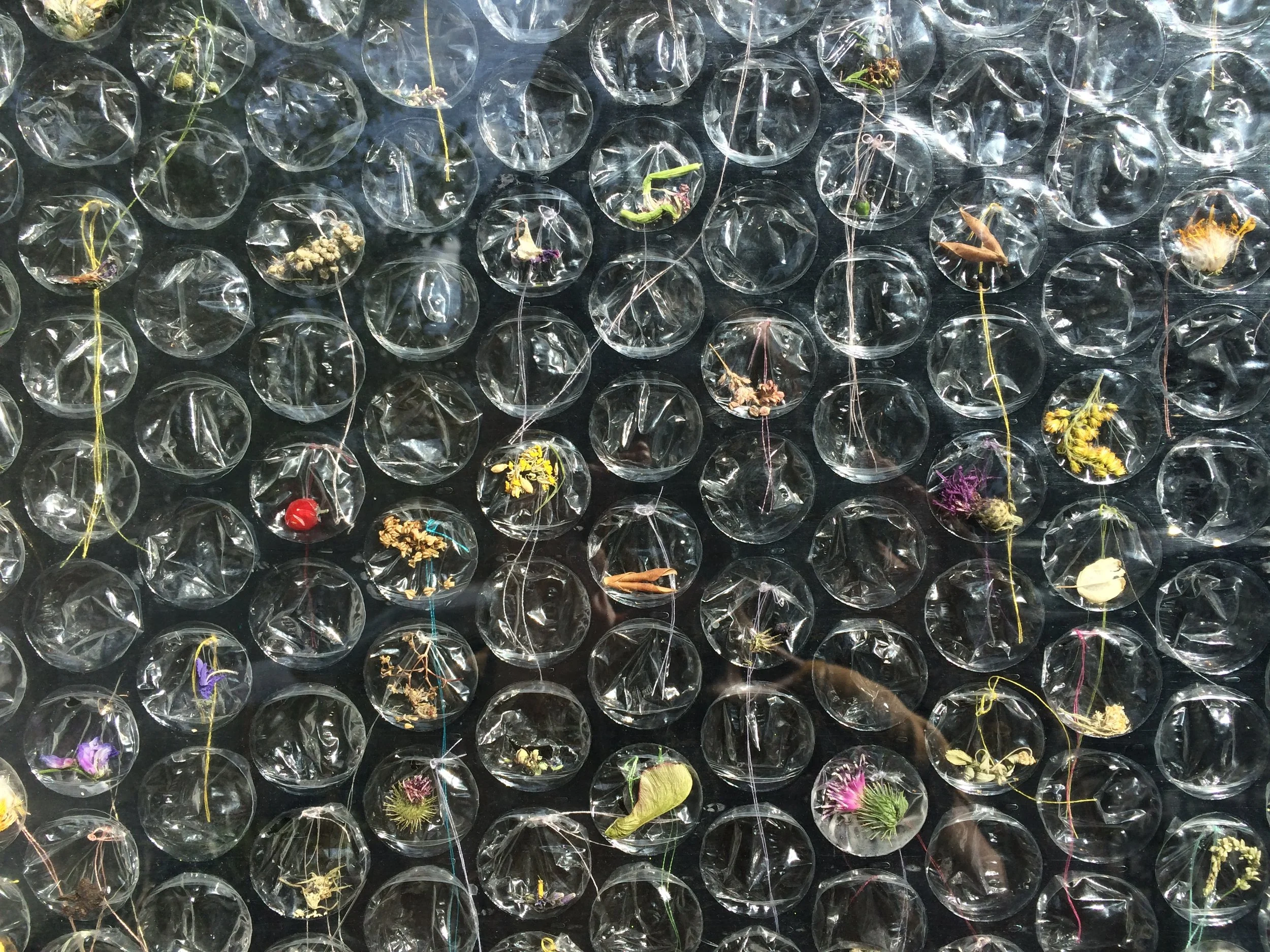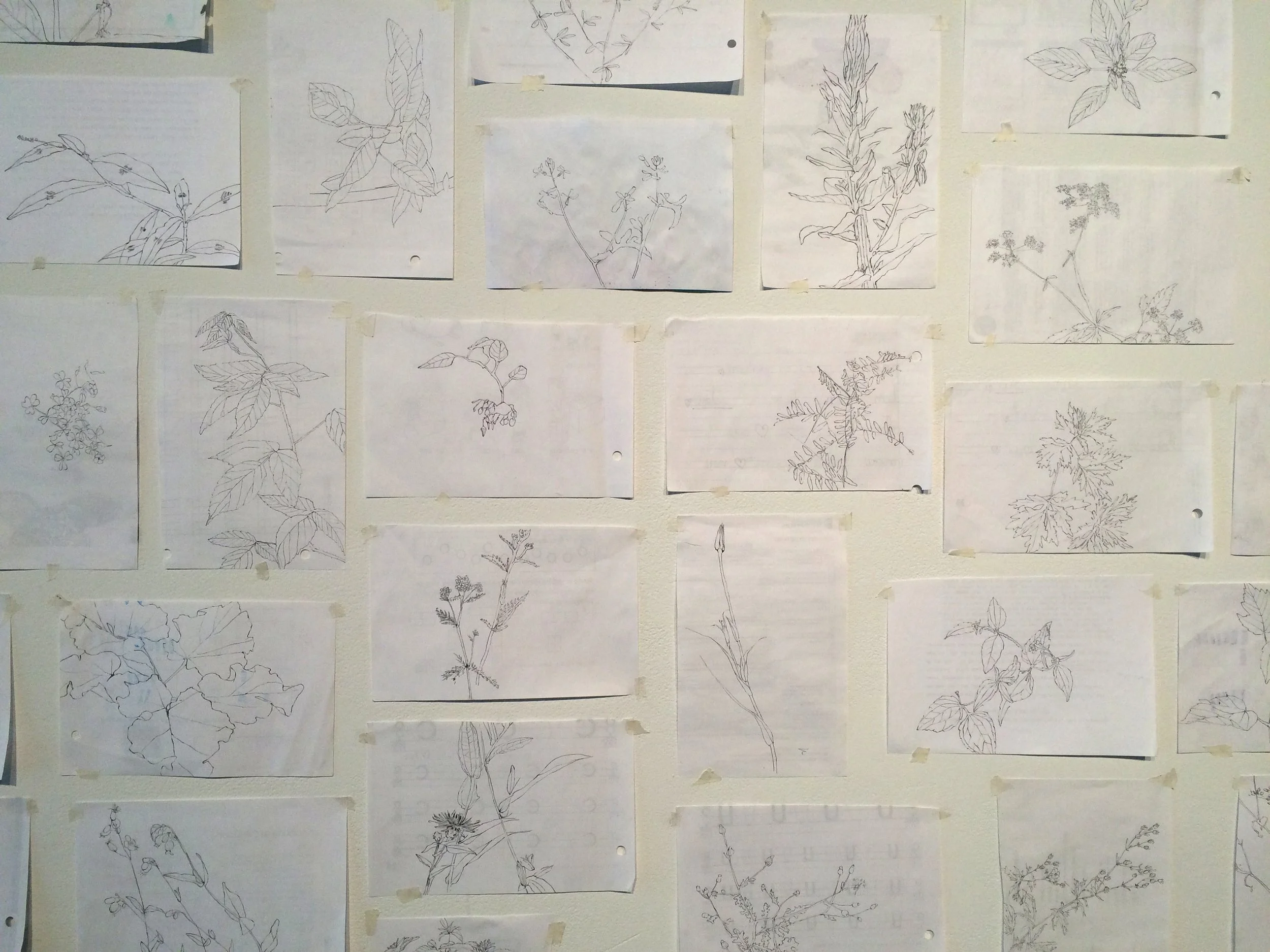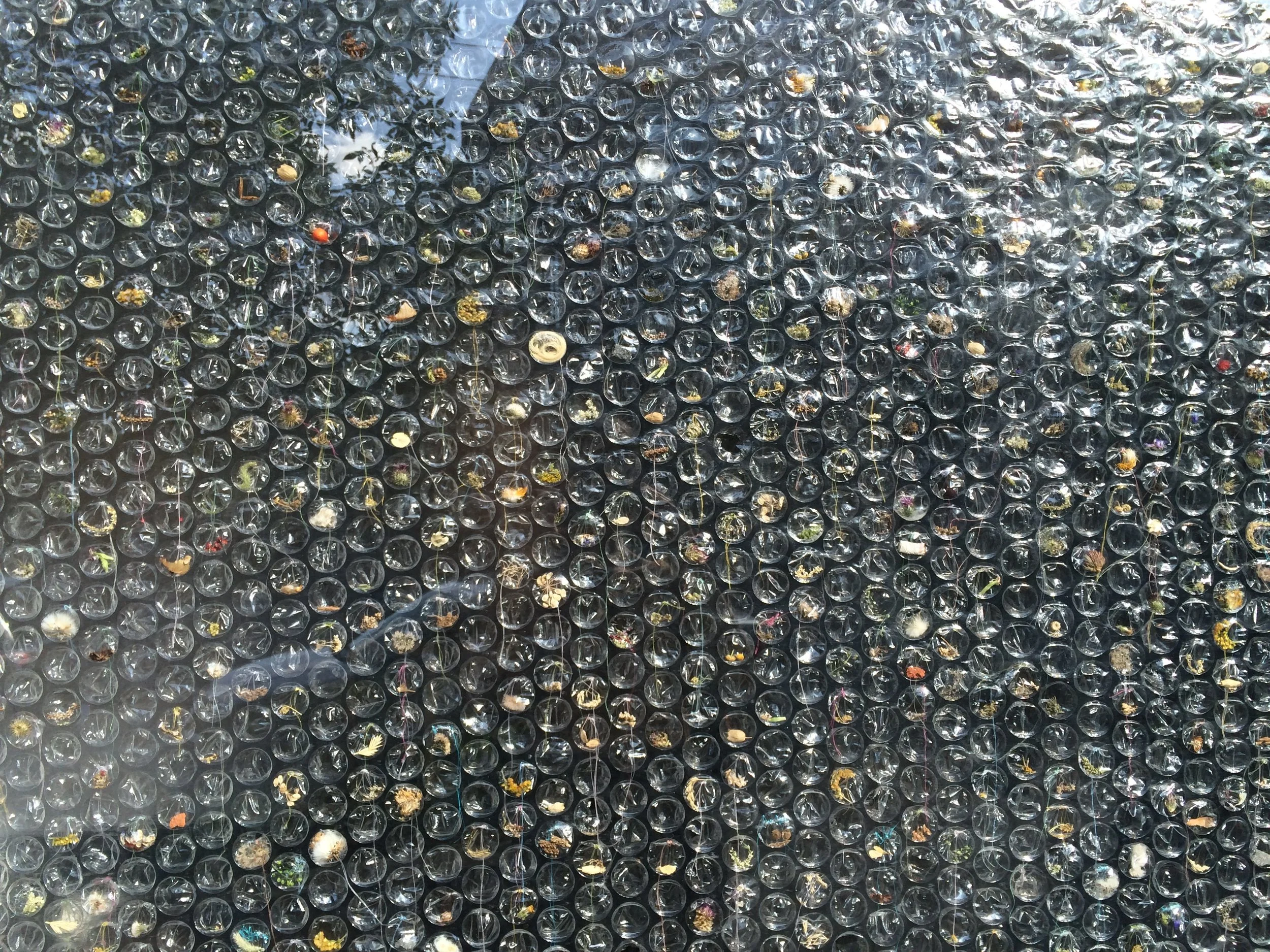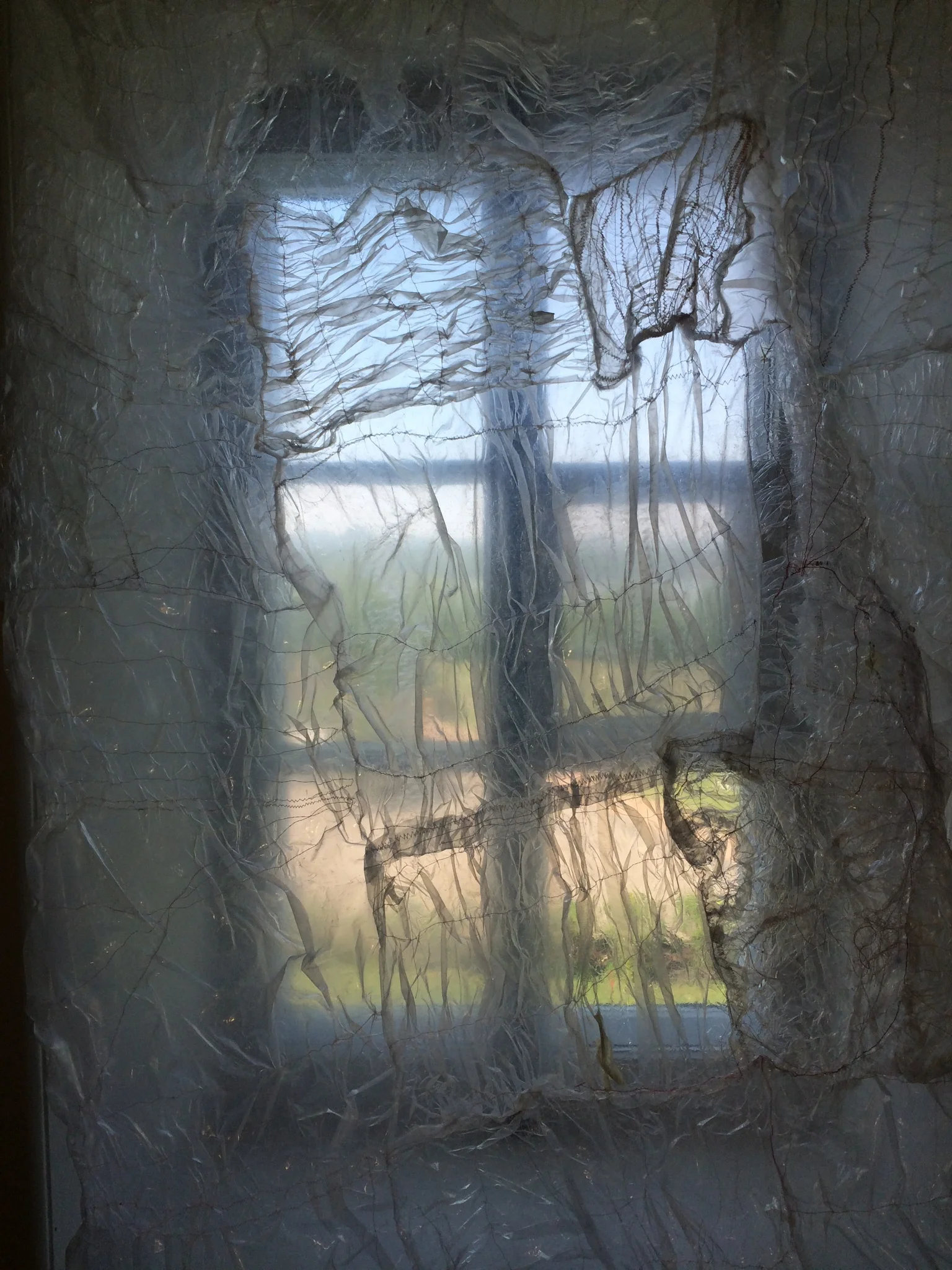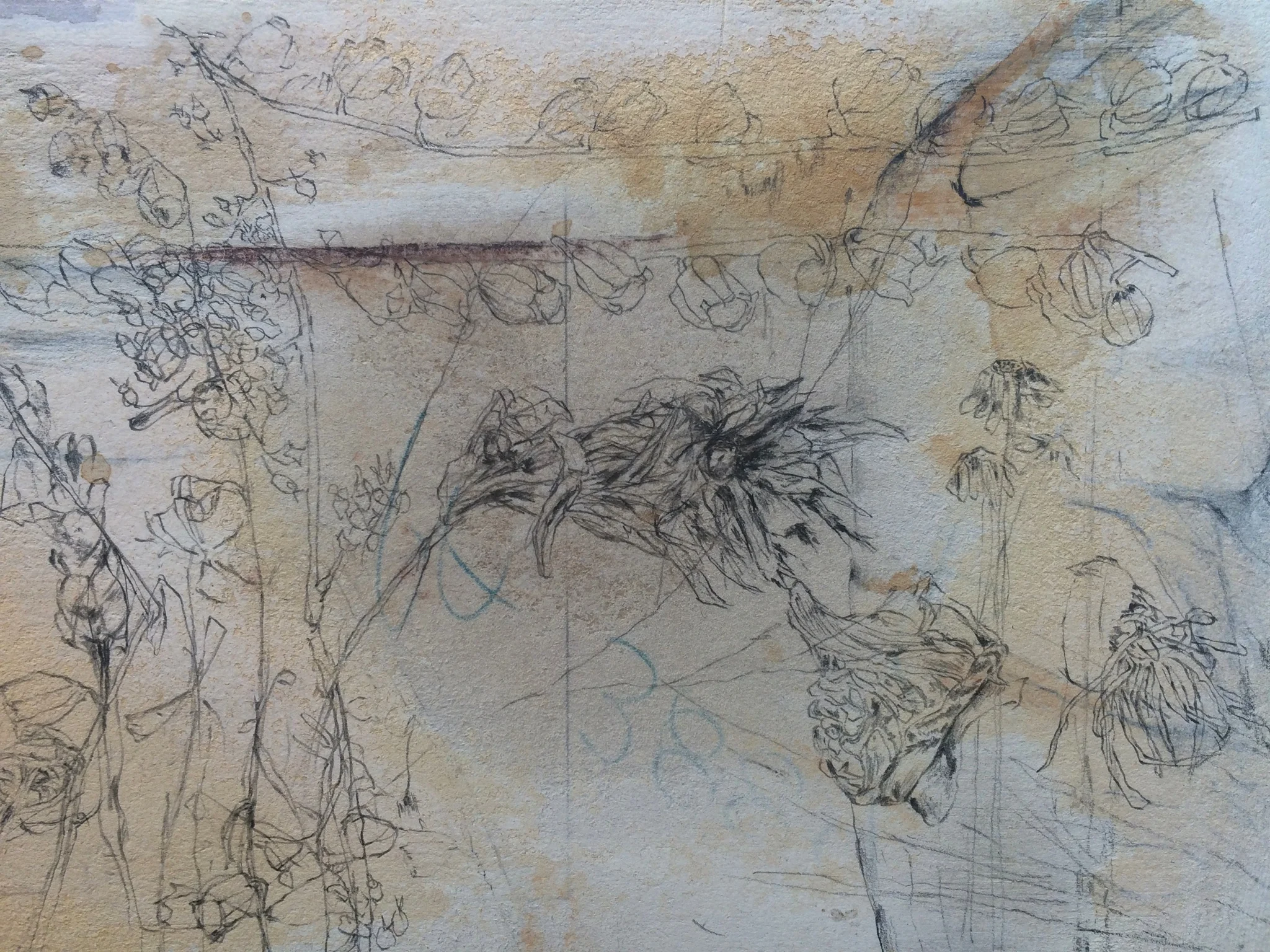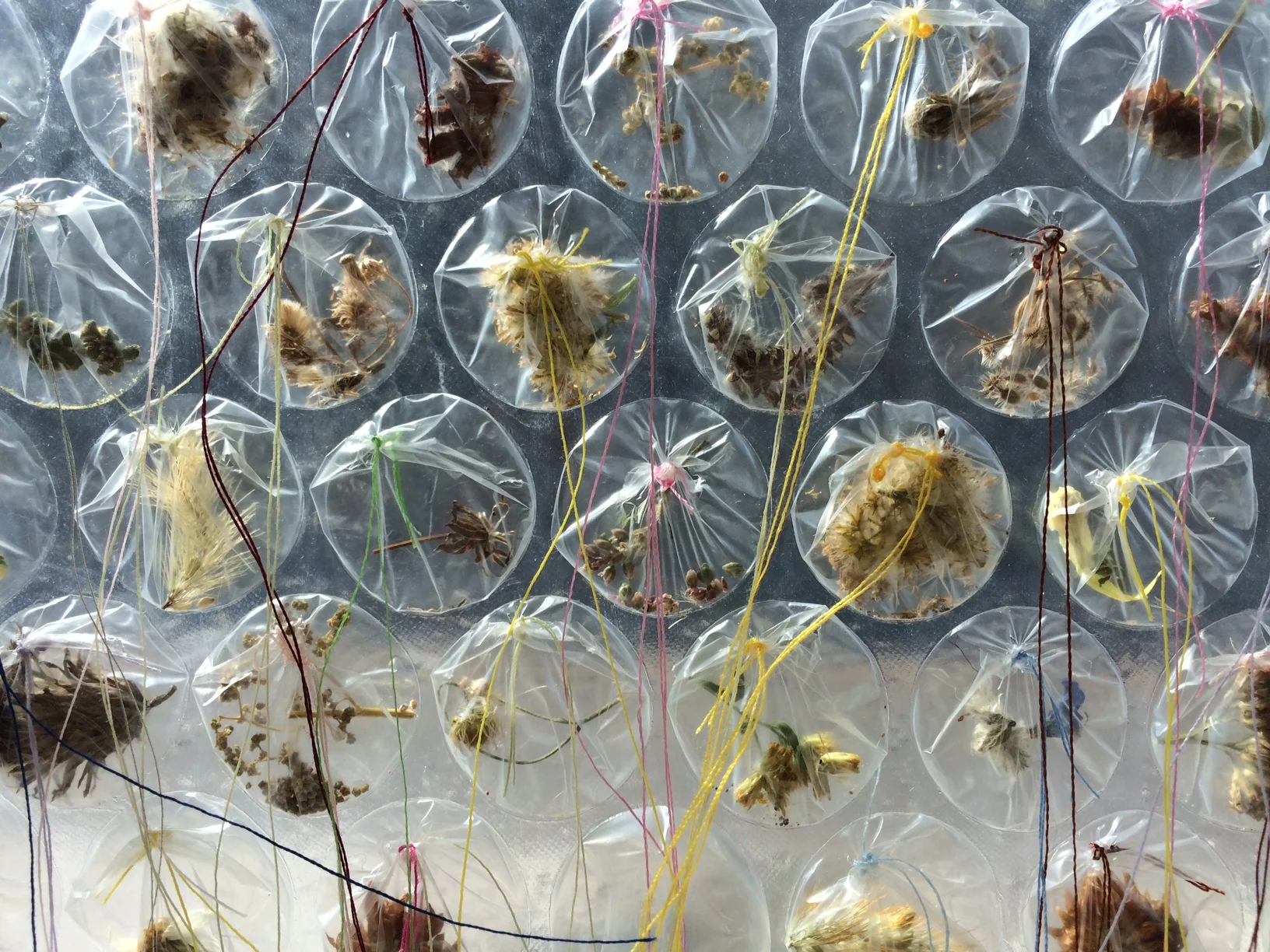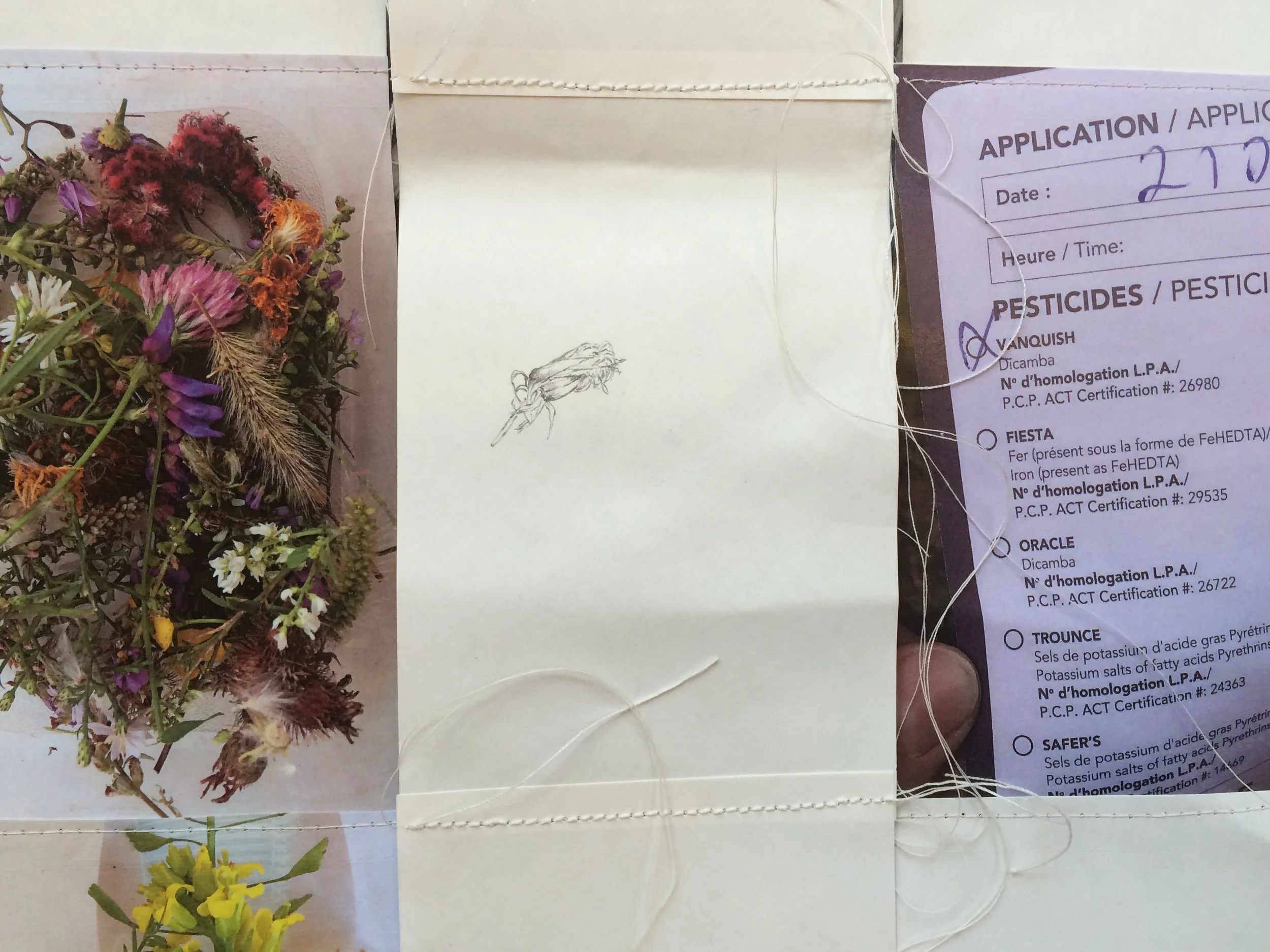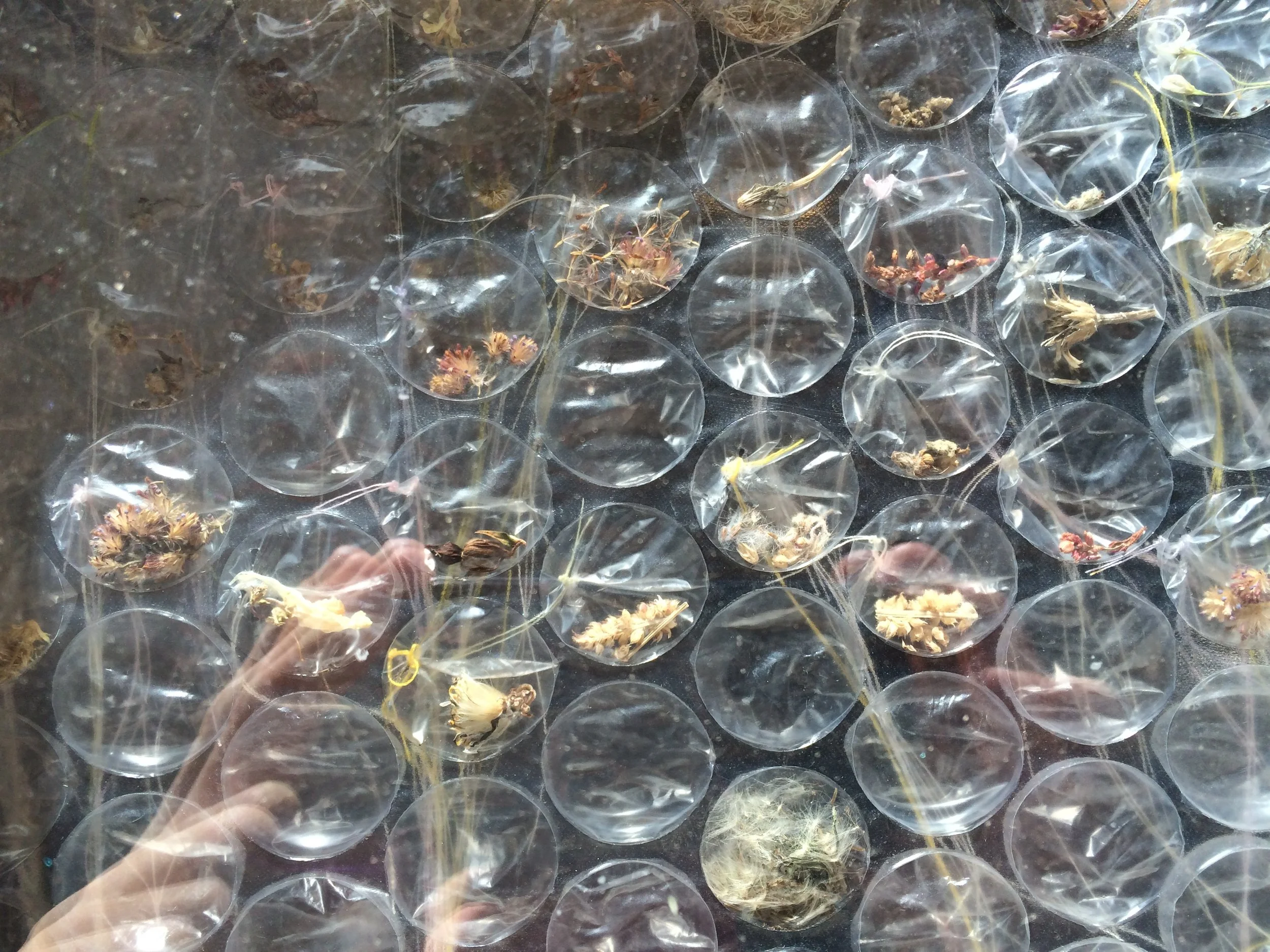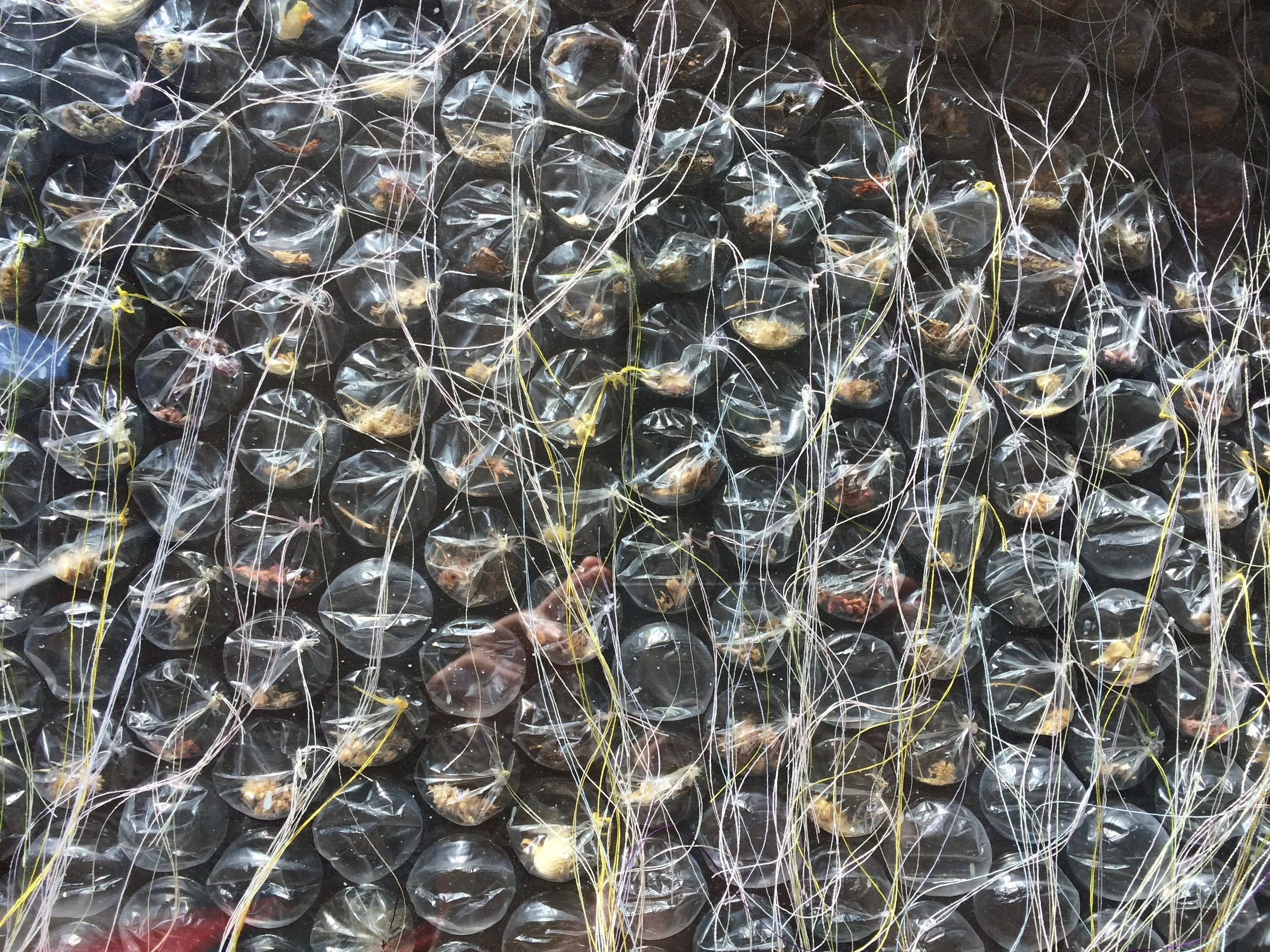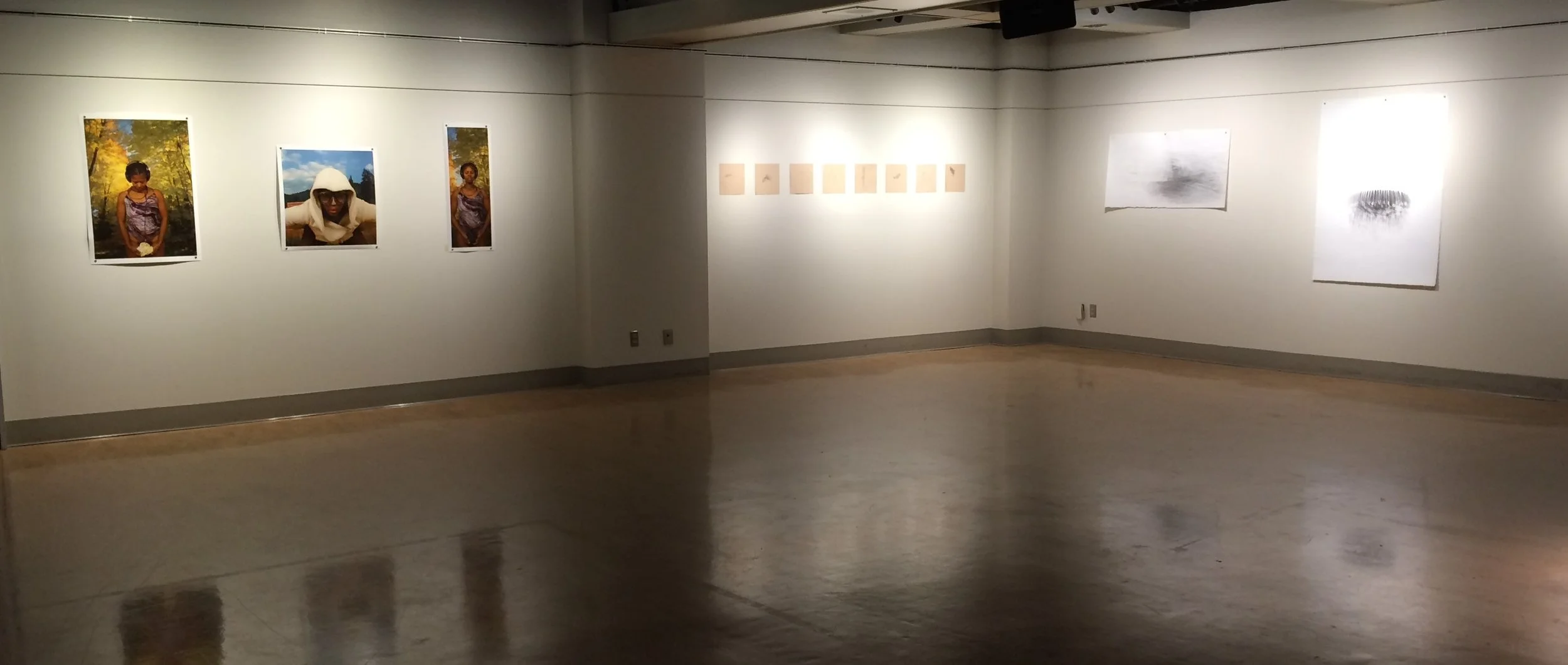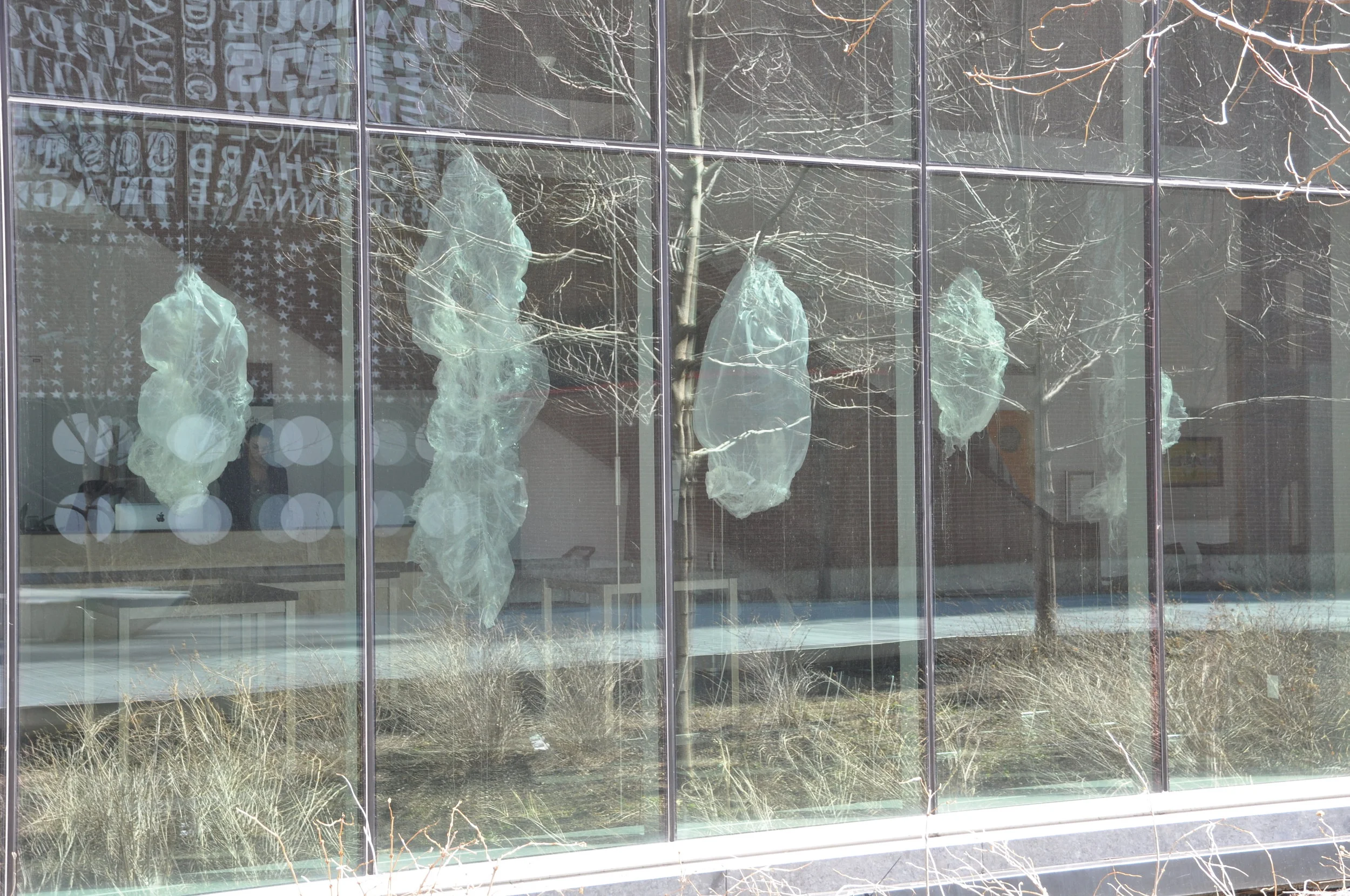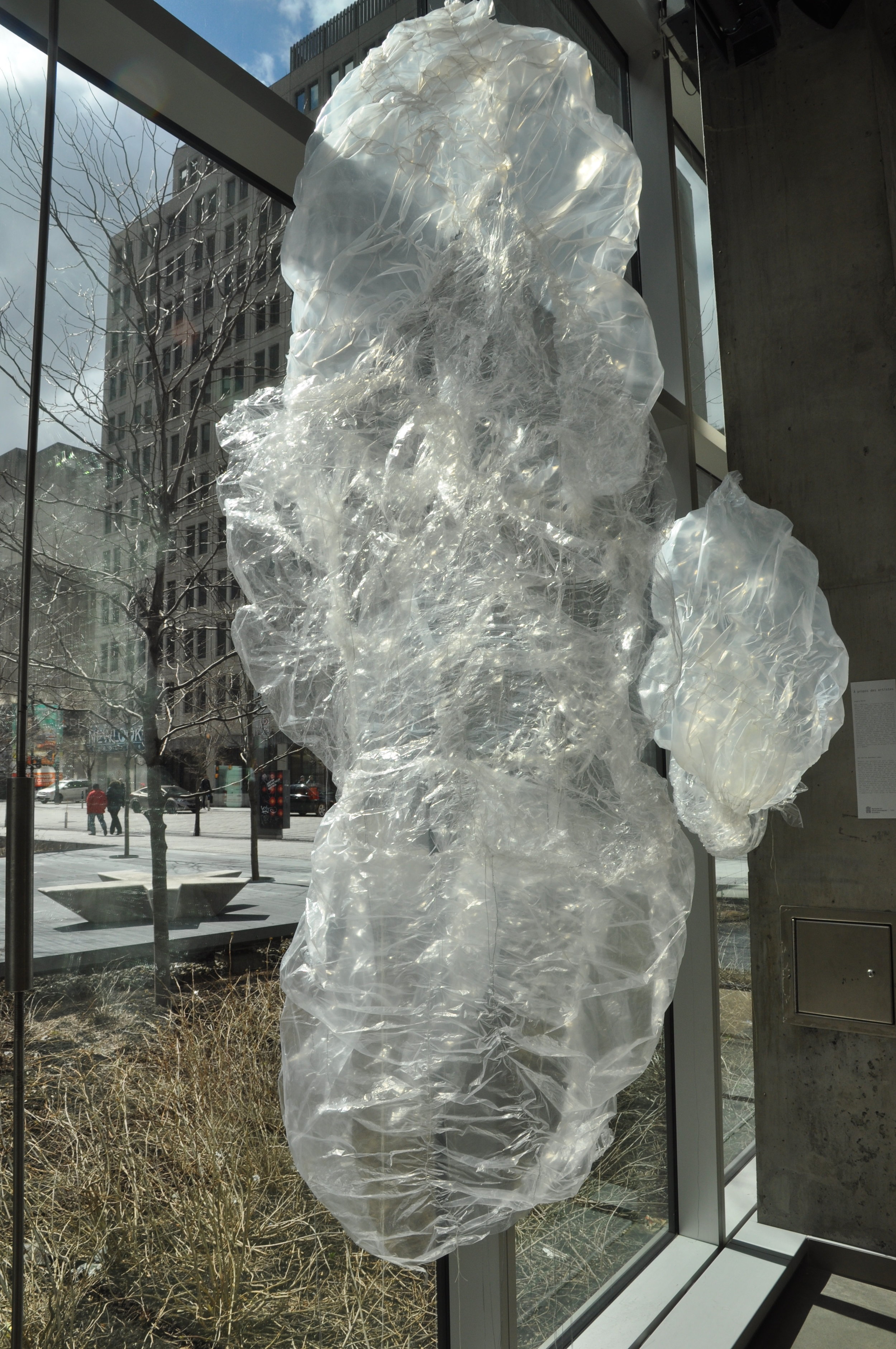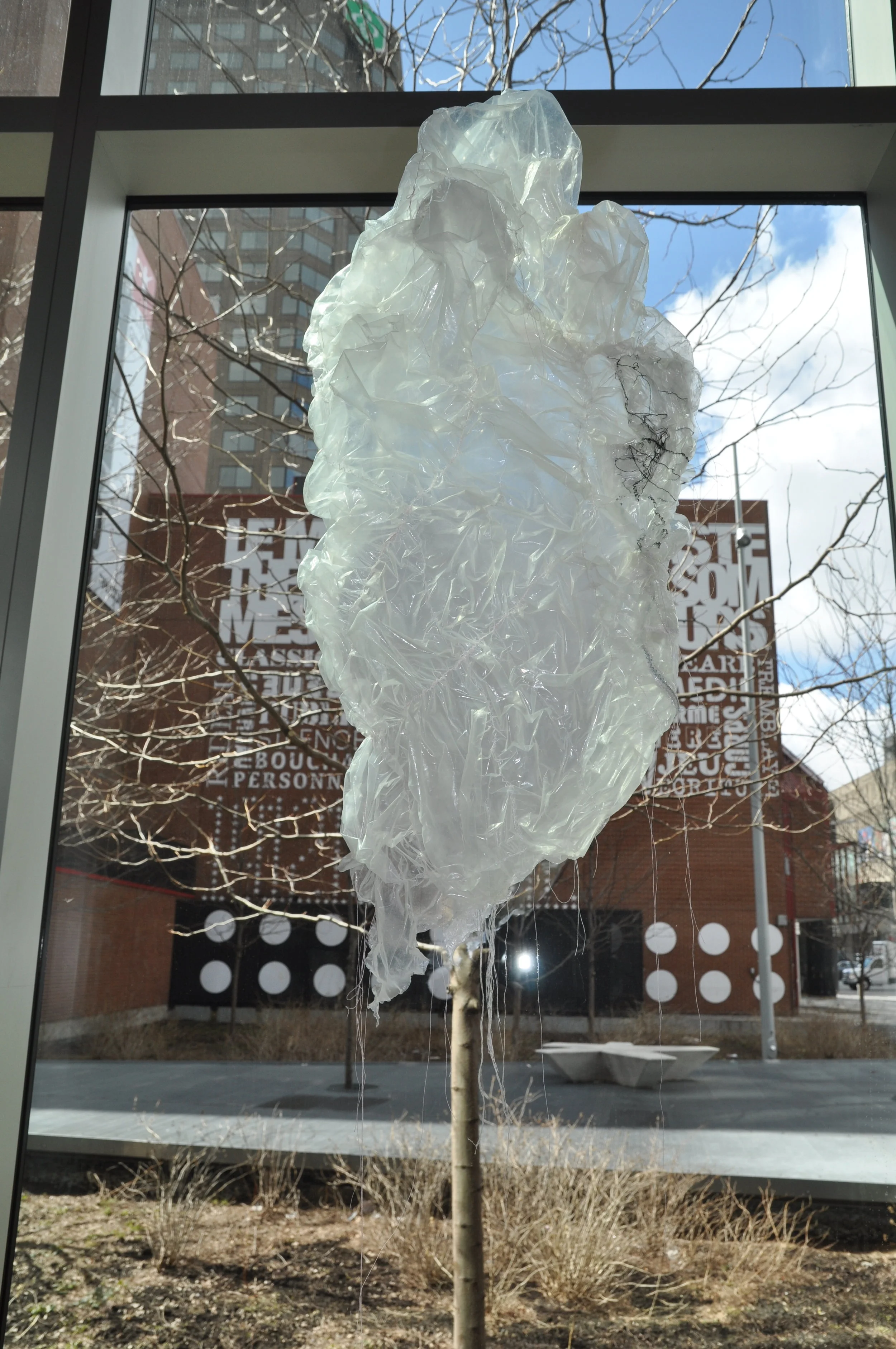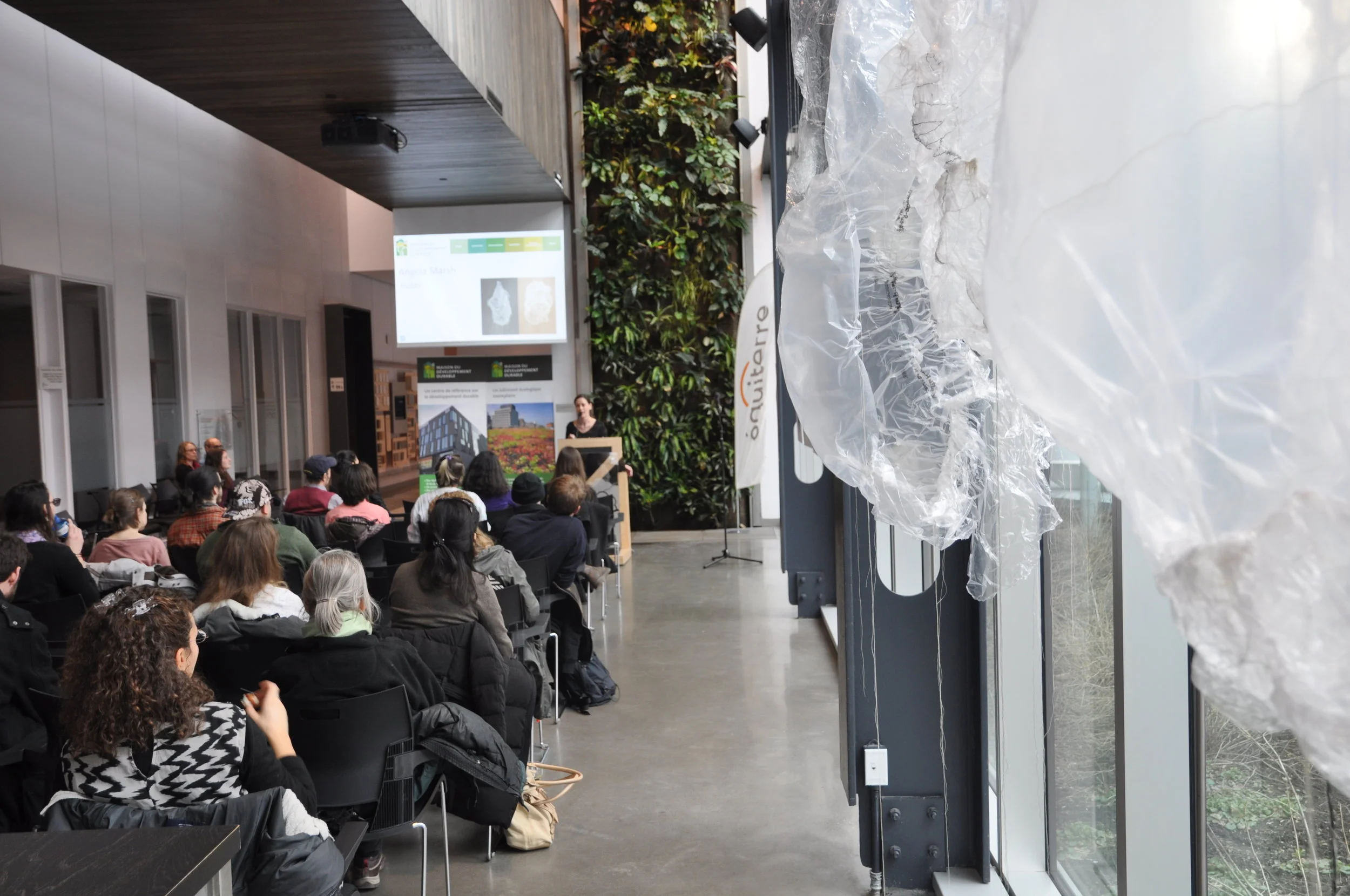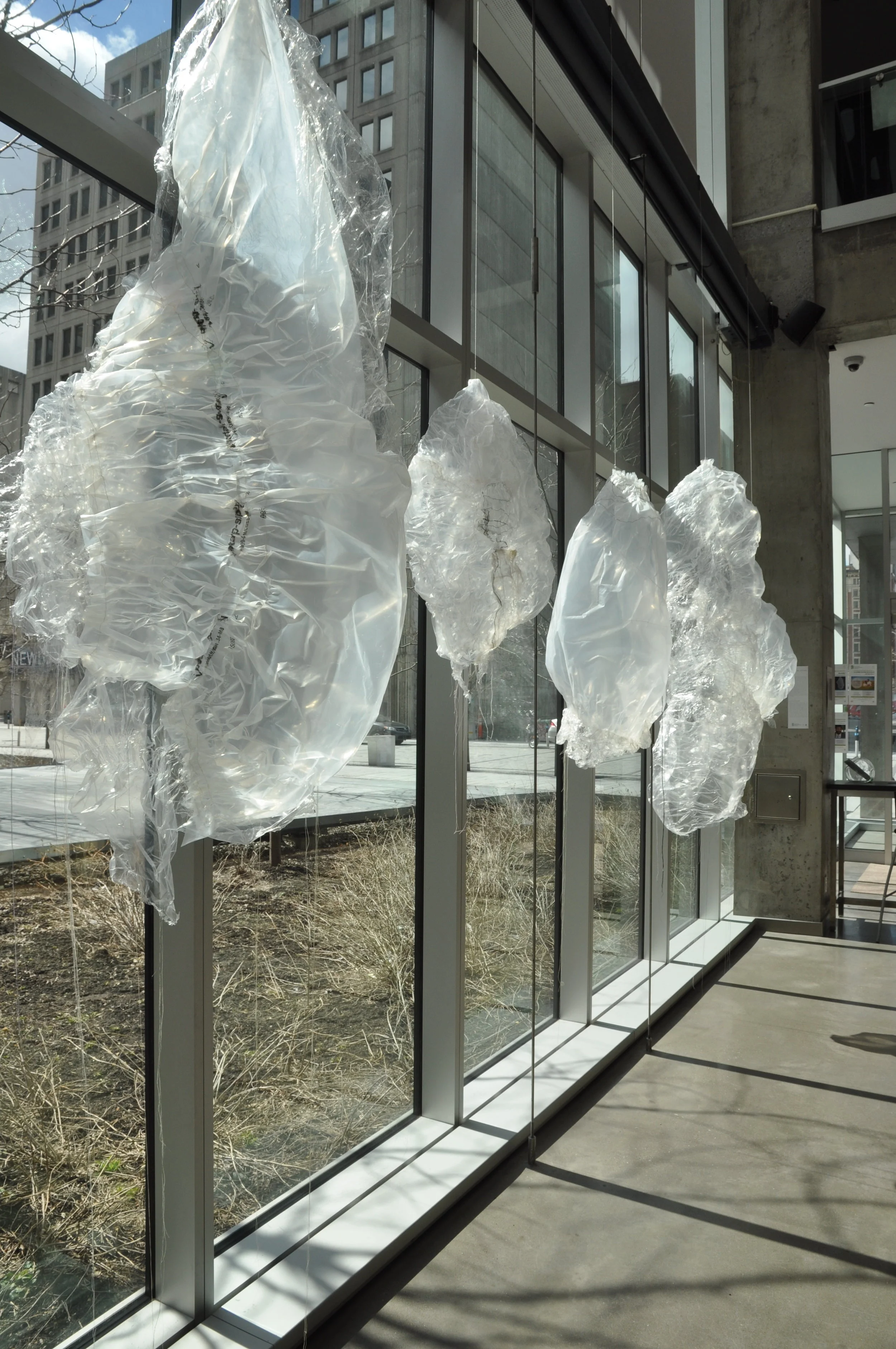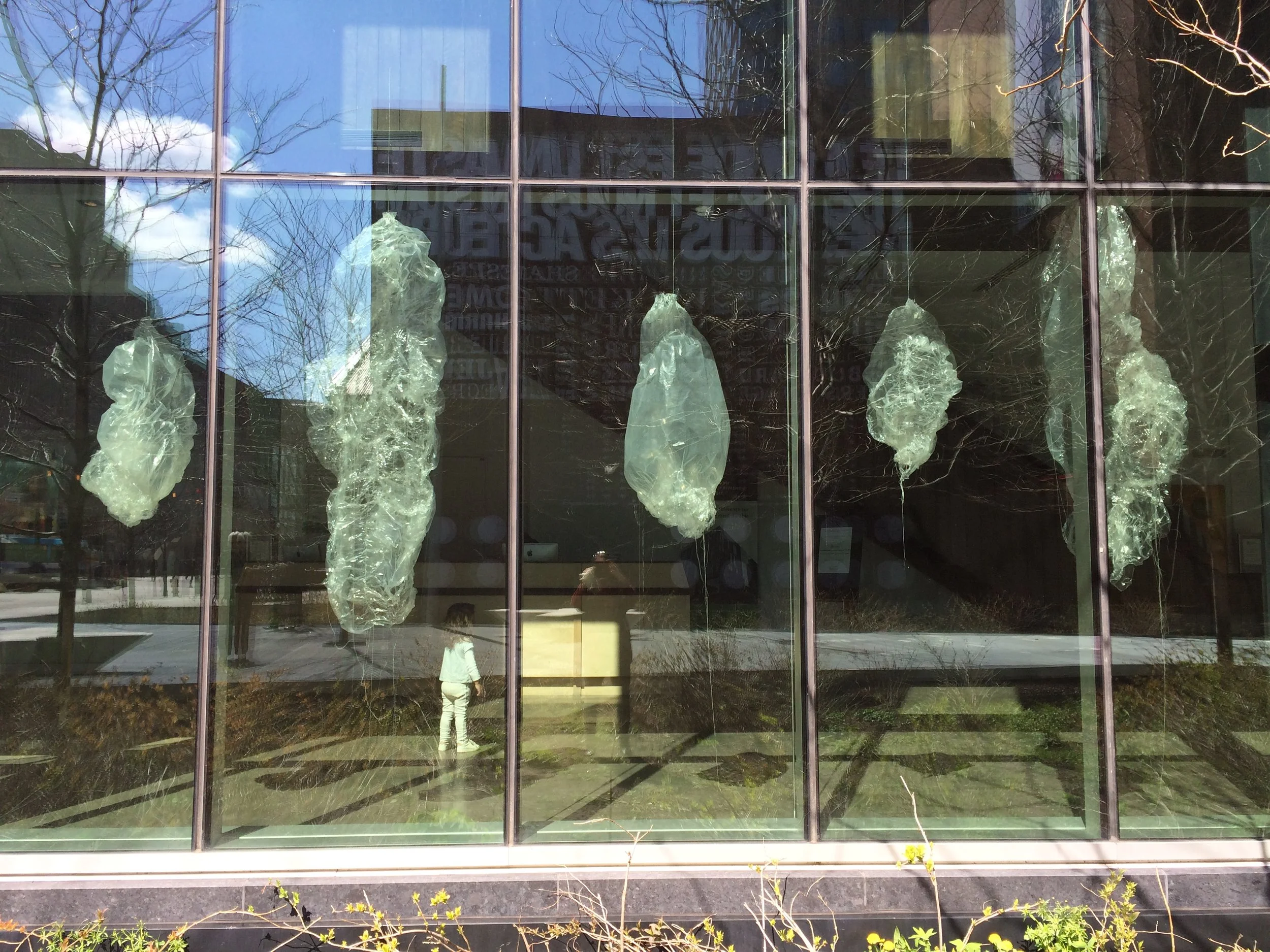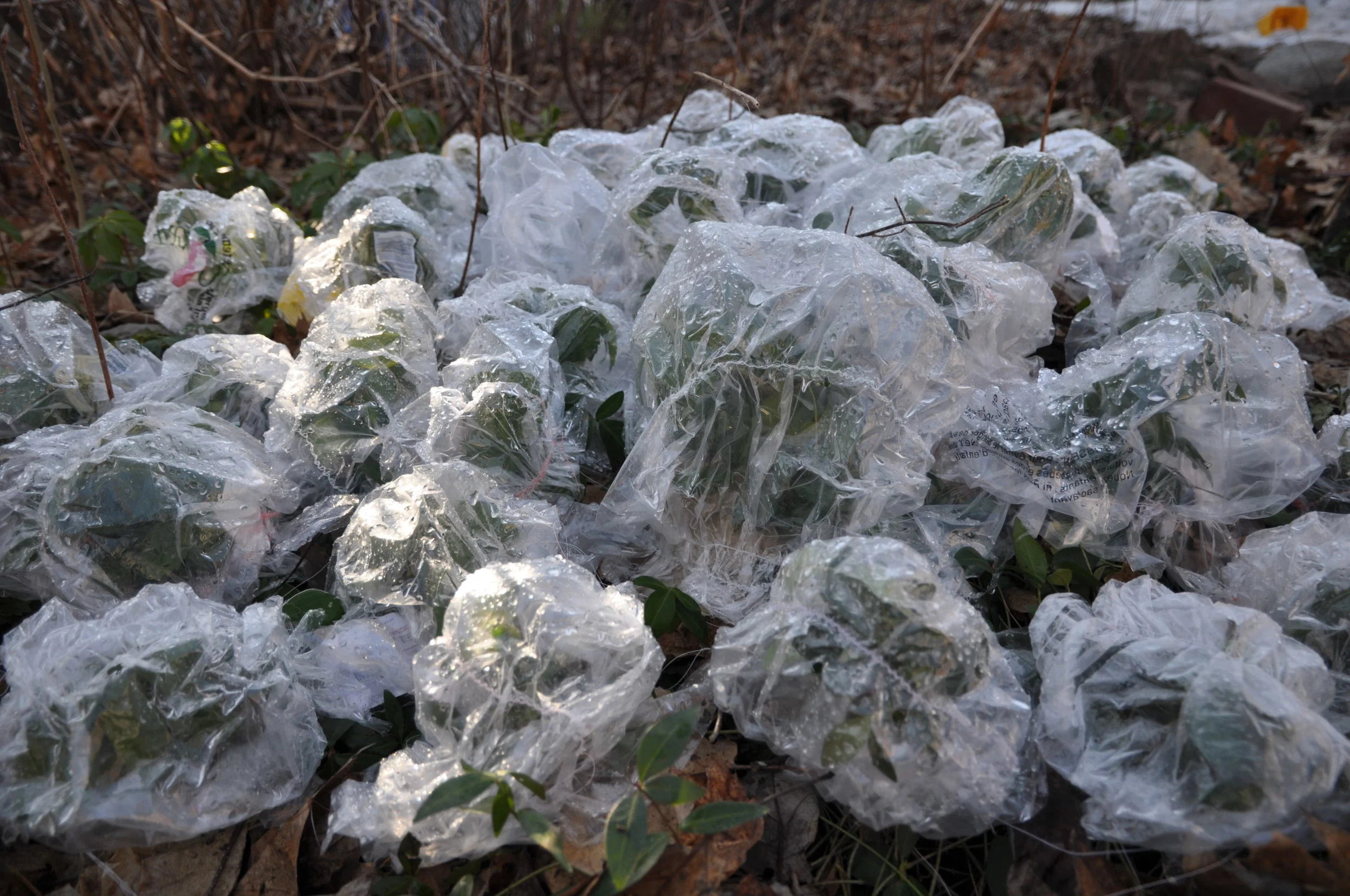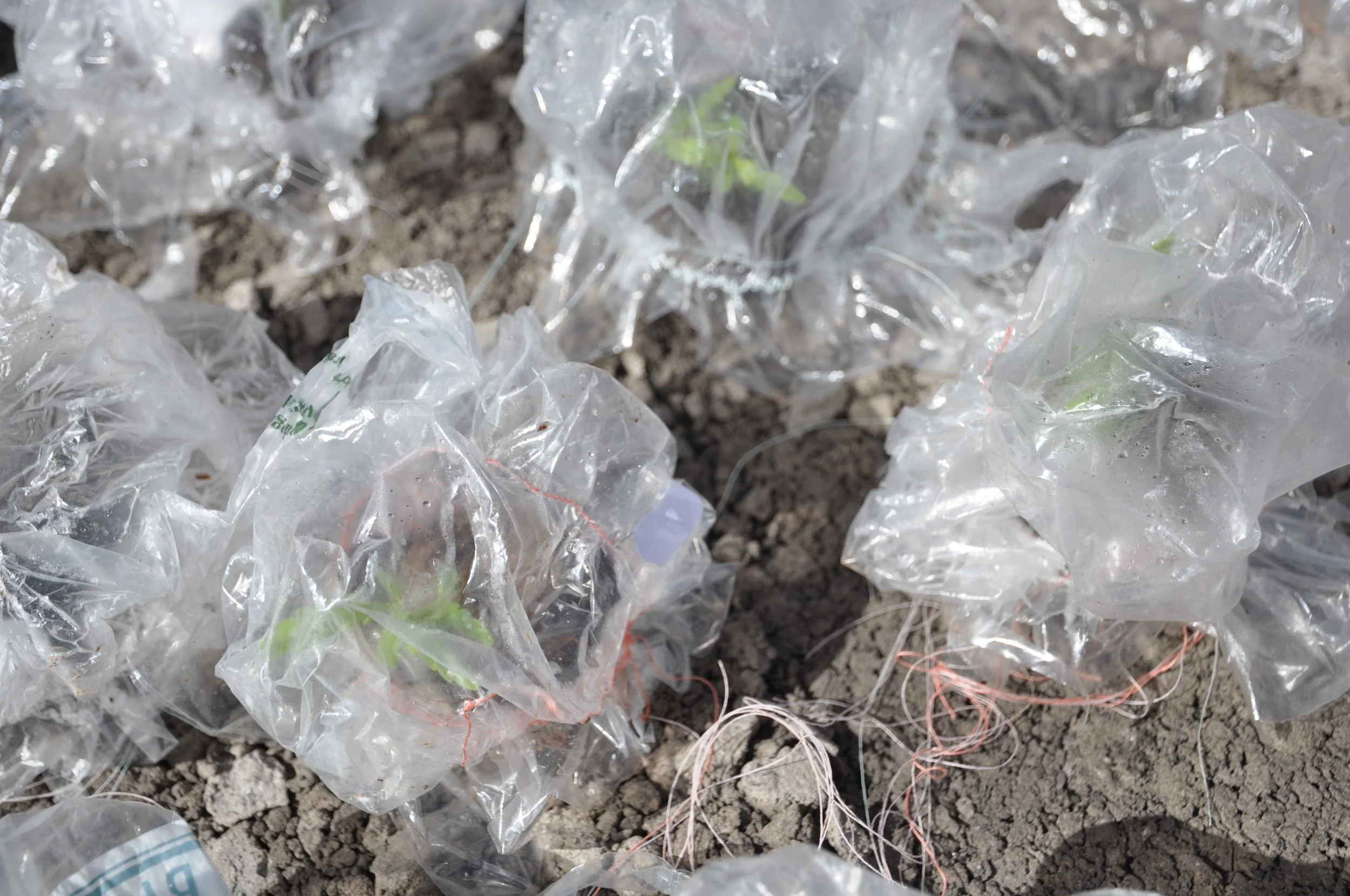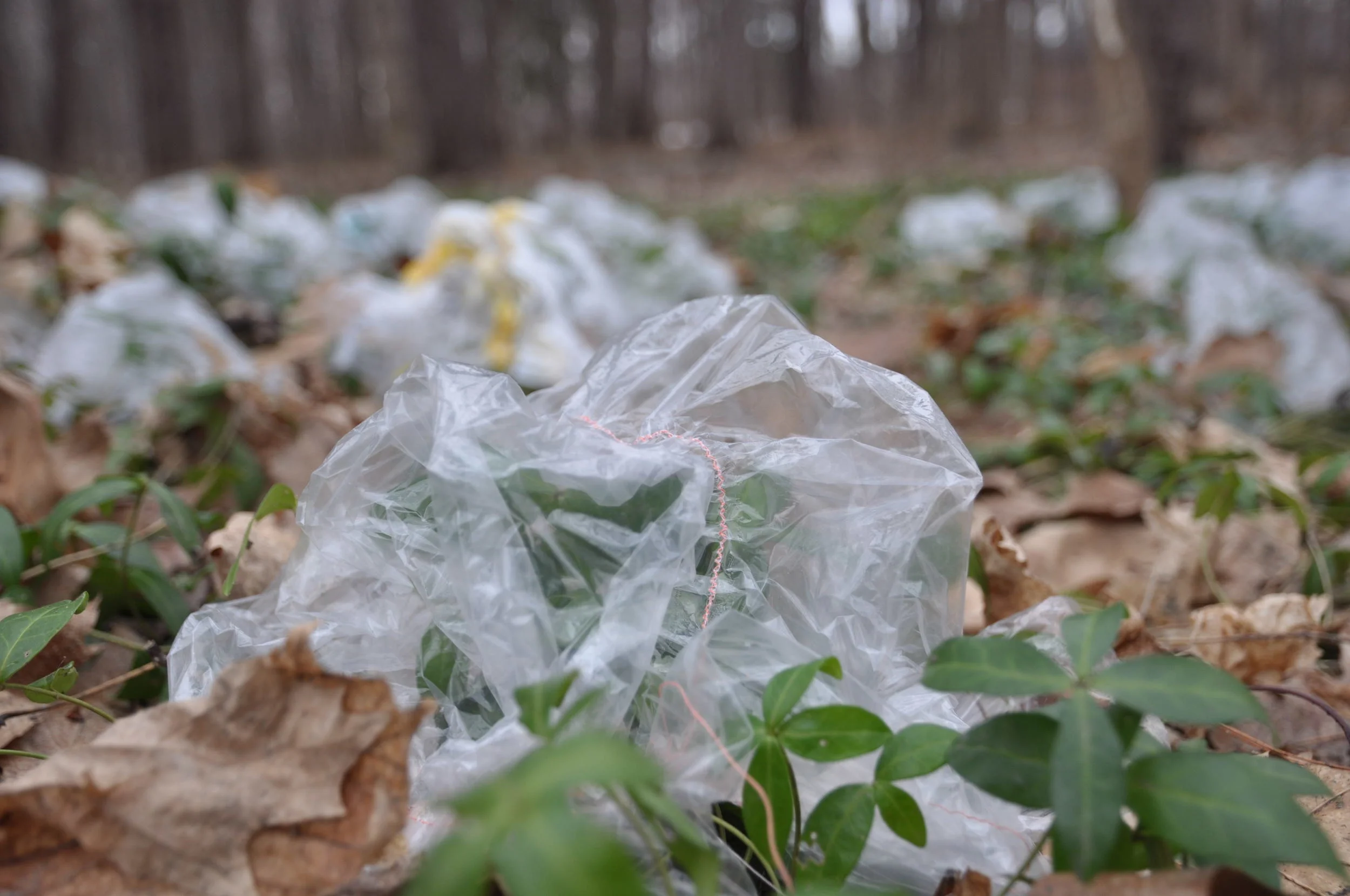Programme de diffusion en arts visuels et métiers d'art 2017
L'Institut Canadien de Québec, Bibliothèque de Québec.
Bibliothèque Aliette-Marchand, 6 juillet – 3 août 2017
Bibliothèque St Jean Baptiste, 5 – 30 octobre 2017
Seeking to reinterpret the myth of Apollo and Daphne from Ovid’s Metamorphoses in a contemporary and well as deeply personal light, this project is a coming-together of my visual imagery with embroidered citations from Ovid’s Metamorphosis as well as passages from contemporary poets and ecofeminist thinkers. The pictorial pieces are oil paint and graphite on recuperated, sanded down mdf board, and the embroidery pieces (in both French and English) are created from coloured threads on scavenged plastics. While a more modest version of this project is being exposed this year in two libraries in Quebec City, the project as proposed to La Centrale is a more ambitious installation of 25 pictorial and embroidered works.
In the ancient myth, Apollo, struck by Cupid’s vengeful arrow, becomes obsessed with the young nymph Daphne, who wishes to remain free and celibate. Fleeing his aggressive advances (which by contemporary interpretations could be considered attempted rape), she prays to her father: “Help me my father, if thy flowing streams have virtue! Cover me, O mother Earth! Destroy the beauty that has injured me, or change the body that destroys my life”… Before her prayer was ended, torpor seized on all her body, her skin becoming bark, her arms branches, and her feet clinging roots that fastened to the ground.
Although Daphne’s transformation was complete, Apollo’s desire for her remained; “although thou canst not be my bride, thou shalt be called my chosen tree, and thy green leaves, O Laurel!” In an interesting transfer of unsatisfied desire, Apollo takes possession of the tree, deciding to use the laurel’s branches as crowns, and for his quiver and lyre, as we might satiate a hunger through shopping in our consumerist culture.
We also understood that women all over the world, since the beginning of patriarchy, were also treated like « nature », devoid of rationality, their bodies functioning in the same instinctive way as other mammals. Like nature they could be oppressed, exploited and dominated by man. (Maria Mies et Vandana Shiva, 2014)
Although Daphne seeks sanctuary in nature, tragically she will still be violated, nature and women being equally vulnerable to possession and domination.
However, Daphne’s turning to nature for salvation is archetypal of an urgency that for me is deeply relevant on a personal as well as a broader social scale, a reintegration of culture into nature, a refutation of the Cartesian systems of dominance and control.
In light of the male logos, the earth can only show itself as silent, dark, wild and threatening. How would it be if we could show the earth in a new, nonoppositional light – in a way that lets the dark be dark and the wild be wild rather than dispensed with as irrational? How would it be if we could show that seemingly threatening wilderness not as other and not segregated to the male institution of the domestic, but as « home », in other words, as belonging-place? Carol Bigwood, 1993
Depuis plusieurs années je peins des portraits d'arbres, ou plutôt des images d’arbres/corps en métamorphose. À travers une observation constante de ces géants urbains qui m’entourent, je vois dans l'arbre une évocation du corps féminin; musclée, enceinte, portant souvent des cicatrices et des blessures de son vécu, mais toujours magnifique.
Dans le mythe d'Ovide Apollon et Daphne, Daphne, qui est victime des agressions d’Apollon, se réfugie dans la nature, en se transformant en arbre. Selon le conte, Apollon, piqué par la flèche maline de la cupidité, poursuit avec un orgueil démesuré et une passion débordante la belle Daphné, qui souhaite rester célibataire et libre. Désespérée par ses avances agressives, elle prie son père (le dieu Pénée) de transformer son apparence, qui plaît trop :
À peine sa prière achevée, voici qu’une pesante torpeur envahit ses membres; sa tendre poitrine est enveloppée d’une mince écorce, ses cheveux s’allongent en feuillage, ses bras en rameaux, son pied, tout à l’heure si rapide, est retenu au sol par d’inertes racines; son visage, à la cime, disparaît dans la frondaison. Seule subsiste en elle l’éclate de son charme.
Daphné, en cherchant un sanctuaire, se tourne vers la nature comme refuge, évoquant l’urgence qui, pour moi, est aussi pertinente dans un sens intime que dans un sens sociétal plus large.
À travers ce projet, je tisse des réflexions entre mon imaginaire et des citations diverses (d’Ovide et de le pensée écoféministe), dans une tentation de comprendre la problématique des dualités qui nous confrontent dans notre société moderne ; la culture/la nature, l’esprit/le corps, et l’homme/la femme.
Puisque tu ne peux pas être mon épouse, tu seras du moins, dit Apollon, mon arbre.
